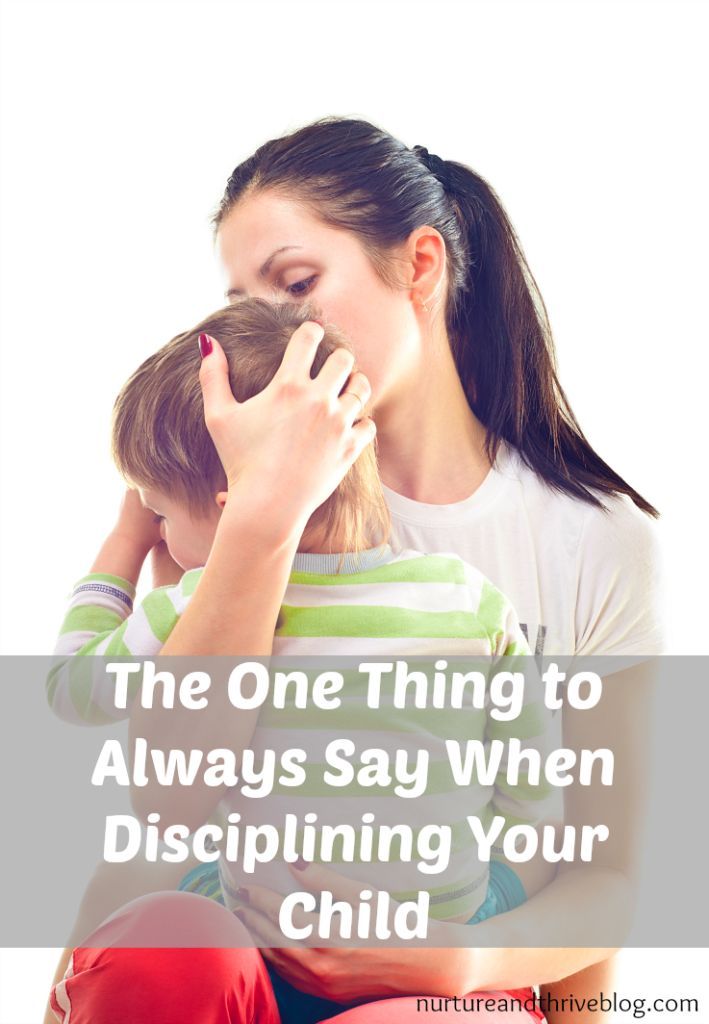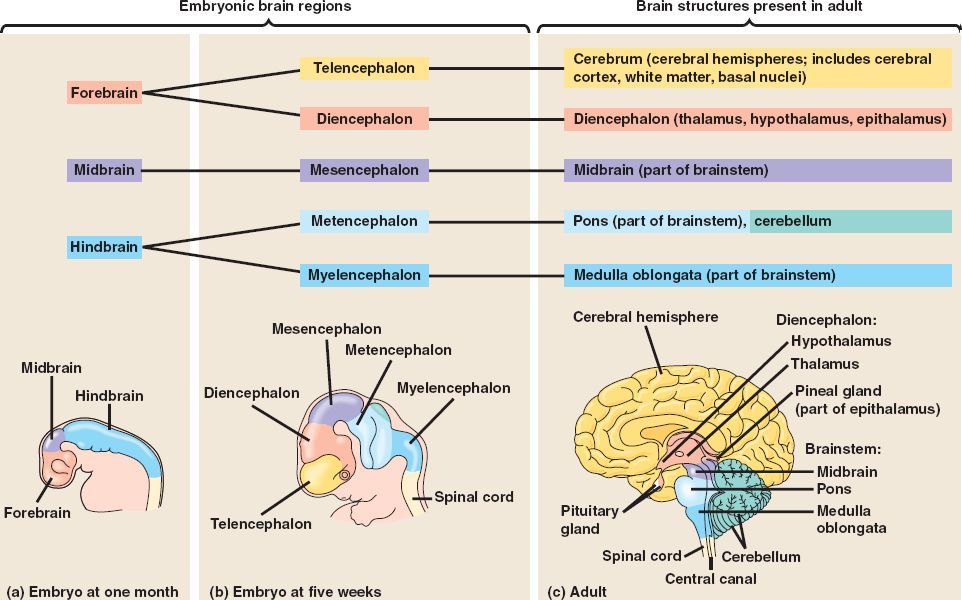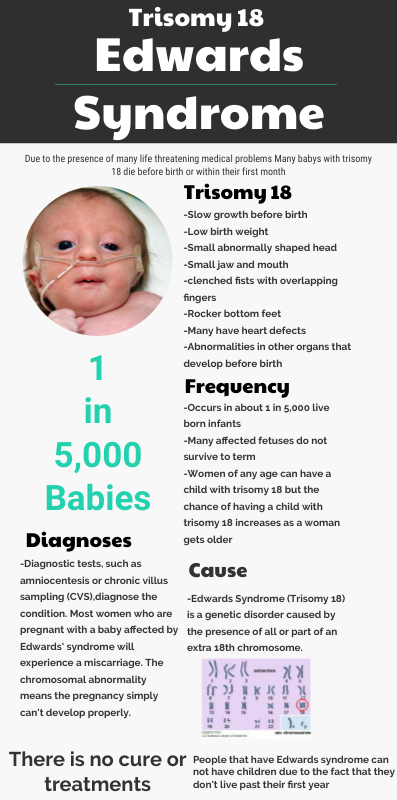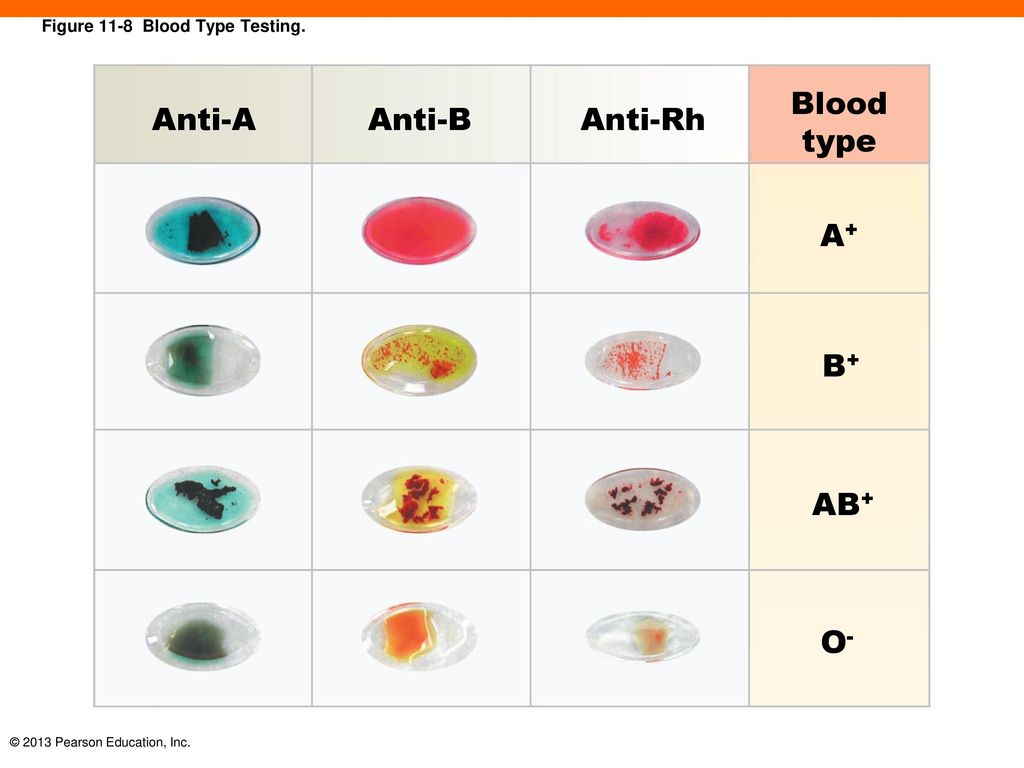How to discipline a child that talks back
5 Steps To Put the Brakes on Backtalk
“I don’t want to!”
“You can’t make me!”
“You’re the meanest mommy!”
“I’m not doing that!”
Sound familiar? You’re not alone. Backtalk is the number one parenting complaint I hear from the thousands of parents I’ve worked with. But does knowing how common backtalk is make it any less frustrating? Of course not!
Backtalk might be annoying and, at times, infuriating, but it’s a common side effect of growing up and gaining independence.
At all ages, kids need a strong sense of personal power on an emotional level. When they can’t get it because we’re ordering them around or doing everything for them, they lash out with words.
It’s a typical “fight or flight” response–since they can’t exactly move into their own apartment (flight), they’ll fight back by testing limits and trying to get a reaction.
There are many reasons WHY kids talk back, so it’s important to get to the root of the issue to determine which strategy will work best.
The best way to stop backtalk in its tracks is to give our kids the positive personal power they need. By fostering independence within our limits, we can help them grow up, as well as limit the backtalk, arguing, and whining that no one enjoys.
Here are 5 steps to put the brakes on backtalk:
1. Give Kids Power
Find opportunities for your kids to assume some control over their own world–picking their own outfit (for a toddler) or planning an activity for a family vacation (for a teenager).
The truth is, when kids’ need for power isn’t met, they will exert their power in all sorts of ways–waging war at the dinner table, prolonging bedtime, refusing to cooperate during the morning routine, or talking back.
In each of these situations, kids have legitimate power–we can’t FORCE them to eat their broccoli. We can’t FORCE them to lie in their bed. We can’t FORCE them to pick up the pace in the morning. And, as much as we wish otherwise, we have no control over what comes out of their mouths.
As a Positive Parenting educator, I teach parents that proactive parenting is the most effective way to see behavior changes in kids. In this case, the more positive power you give them PROACTIVELY, the less you’ll have to REACT when they exert their power in negative ways.
2. Don’t Play a Role
Communication is a two-way street, and parents have to “own” the role they play in the power struggle.
Be aware of your communication style and minimize the amount of ordering, correcting, and directing you do with your kids (and spouse)!
The truth is, parents unknowingly contribute to the power struggles that produce backtalk by bossing kids around too frequently.
Take a moment and switch places with your kids–would you be able to hold your tongue if you were told what to do all day? In the working world, it’s equivalent to working for a bossy micro-manager–it’s exhausting, frustrating, and most of all DISCOURAGING.
If you spend the majority of your time ordering, correcting, and directing your children, they are sure to be discouraged too.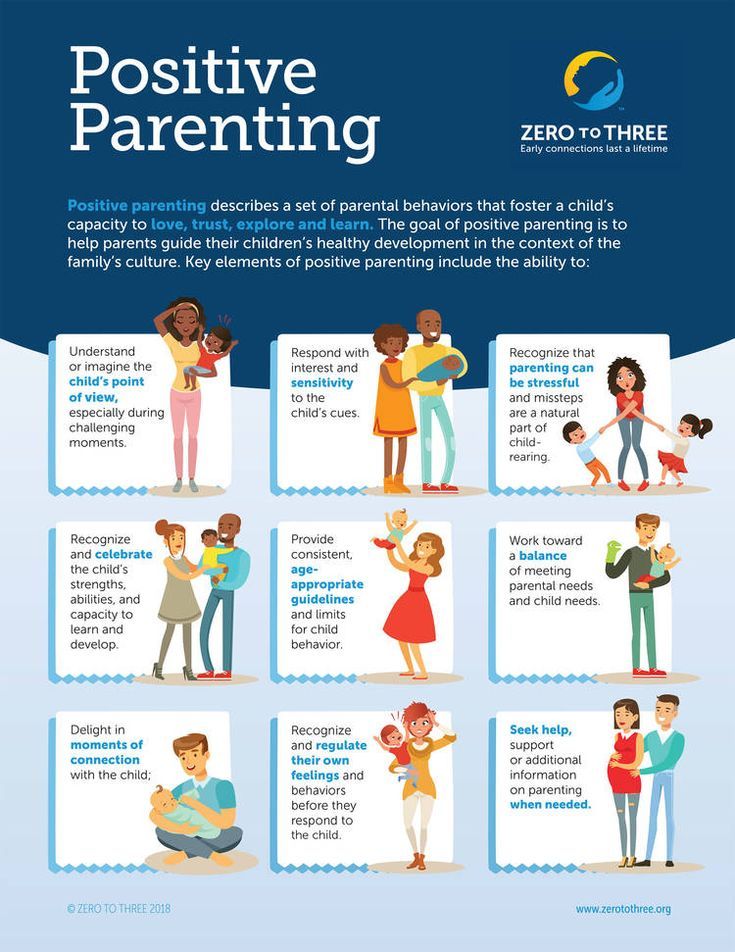 Instead, spend intentional time playing, listening, and engaging with them to proactively ward off the backtalk.
Instead, spend intentional time playing, listening, and engaging with them to proactively ward off the backtalk.
By engaging more and ordering less, you’ll be amazed at how much more cooperative your children will be and how the backtalk will slowly diminish.
Note: For Positive Parenting Solutions members, take the Parent Personality Assessment in Step 1 to discover how your personality priority affects your parenting style.
3. Pay Attention
Just like the need for power mentioned above, your kids have an attention basket that needs to get filled every day.
All humans have a basic need for belonging and significance, and for children, these needs are most effectively met when you give your child undivided attention. Before you say, “But wait! I give them PLENTY of attention!” let’s break this down a little further.
As a starting point, I teach parents to spend 10 minutes every day with each child. Here at Positive Parenting Solutions, we call this a MIND, BODY AND SOUL TIME® routine because it has incredible effects on the mind, body, and soul of your children.
In order for the 10 minutes to satisfy the child’s basic need for attention and meet the criteria for a MIND, BODY AND SOUL TIME® routine, it needs to fit the following 3 categories:
1. It’s Child-centric: This means the child calls the shots. By giving your child full reign over how you’ll spend this time, you’re filling both the power AND attention buckets–sounds like a win-win, huh?
Be prepared to play dress-up, re-enact a favorite movie, kick a soccer ball around, have a dance party to their favorite tunes, read a treasured book, build a LEGO castle–whatever your child suggests for 10 minutes, you enthusiastically oblige.
2. It’s Uninterrupted: Put away the phone, the remote, the calendar, the book–all of those things can wait. It’s vitally important your children have our undivided attention during this time.
If you have more than one child, find something the other kiddos can be doing during this time, so you can engage with each child separately.
3. It’s Identified and Claimed: Give your 10 minutes together a name: “Mommy and Daniel’s Special Time” or “Our Togetherness Time” or any name you two come up with. By naming this time together, your child is able to categorize this time together as meaningful and significant.
Naming this time also gives YOU credit in your child’s emotional bank. While it may seem silly to “take credit” for spending time with your child, it is a gentle reminder to your child that you’re consistently investing in their life. When you are finished, simply say, “Wow, I really enjoyed our time together. I can’t wait to do it again tomorrow!”
By investing the time up front, you’ll see a decrease in the backtalk you’re experiencing.
Spending this quality time with each of your children will greatly reduce the power struggles you’re facing, and your children will begin to realize everyone is on the same team!
Note: For Positive Parenting Solutions members, refer to Step 1 in the online course and the Ultimate Survival Guide–“MBST: Your Secret Weapon for Better Behavior”–to learn everything there is to know about this life-changing tool.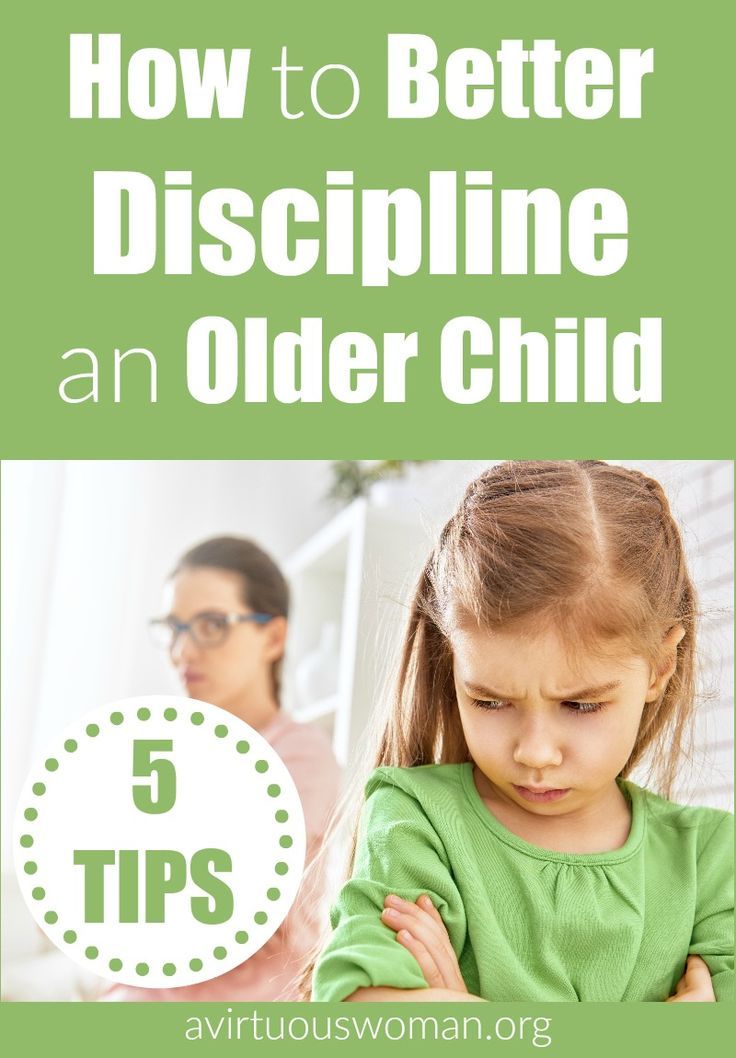
4. Refer to the Rules
Kids thrive under structure and routine. While it may seem counter-intuitive, power struggles occur more often when kids DON’T know what to expect. More often than not, backtalk is simply pushback to an expectation that hasn’t been clearly outlined or enforced.
While flexibility in parenting is necessary at times, consistency and stability will set you up for long-term success. Give your children very clear expectations for your house, and set up explicit consequences for any child who chooses to test them.
You don’t have to be overly harsh or strict, you simply need to stick with the limits you put in place.
5. Keep Your Cool
While your children are putting on a drama performance worthy of a Tony award, your job is to be an unimpressed attendee.
When you get upset and respond with a “you WILL not talk to me that way, young man!” they SCORE a power payoff. Your kids may be talking back simply to get a rise out of you–so don’t give them the satisfaction!
Simply say, “I feel hurt by the way you’re talking to me. When I hear that tone of voice, I’m going to walk away. We can talk again when you can speak respectfully to me.” Then walk away.
When I hear that tone of voice, I’m going to walk away. We can talk again when you can speak respectfully to me.” Then walk away.
Next time it happens, there’s no need for even a warning–simply leave the room. You’re sending the message that you refuse to participate in a power struggle. And when there’s no one to fight with, there’s no fight!
Final Thoughts
Backtalk is extremely frustrating, but with the right tools, you can diffuse it in no time!
Don’t be surprised, however, if once you get backtalk under control you start seeing other power struggles flare up. That’s why I’ve created an entire parenting course–to help parents with ALL of their power struggles, not just one.
If you’d like to see if Positive Parenting Solutions is a good fit for your family, I’d love for you to JOIN ME FOR A FREE CLASS. I’ll give you even more tools to get your kids to listen without nagging or yelling!
Title image: Prostock-studio / Shutterstock https://www. shutterstock.com/photos
shutterstock.com/photos
What You Should Do Next:
1. Subscribe to my Newsletter:
Sign up for my newsletter for parenting tips to help you create a happier home and become the parent you always wanted to be. Plus, when you subscribe, I'll also send you a copy of our strategy-packed guide 10 Tips for Better Behavior – Starting NOW!
2. Register for my FREE 60-Minute Class:
Register for my free class called How to Get Kids to Listen, Without Nagging, Yelling or Losing Control. Classes run several times per week but I recommend you register early, as spaces are limited.
3. Enroll in my
7-Step Parenting Success System® CourseEnroll now in my proven 7-step system for busy parents ready for change (it's rated 5 stars on Google). Plus, for a limited time, save 10% plus get a FREE upgrade on all plans—completely risk-free and with lifetime access.
About the Author
Nationally recognized parenting expert Amy McCready is the Founder of Positive Parenting Solutions® and the best-selling author of The “Me, Me, Me” Epidemic - A Step-by-Step Guide to Raising Capable, Grateful Kids in an Over-Entitled World and If I Have to Tell You One More Time…The Revolutionary Program That Gets Your Kids to Listen Without Nagging, Reminding or Yelling.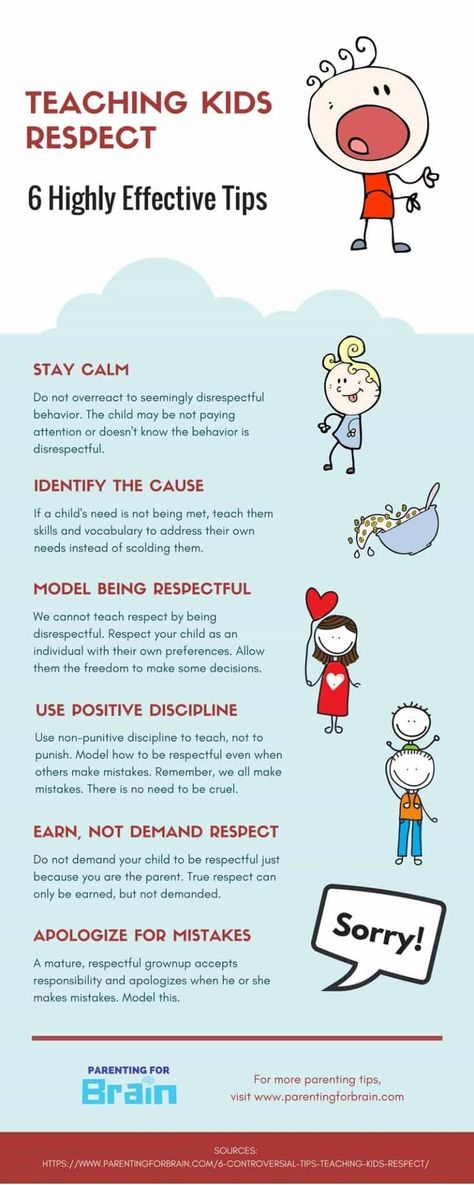 As a “recovering yeller” and a Certified Positive Discipline Instructor, Amy is a champion of positive parenting techniques for happier families and well-behaved kids. Amy is a TODAY Show contributor and has been featured on The Doctors, CBS This Morning, CNN, Fox & Friends, MSNBC, Rachael Ray, Steve Harvey & others. In her most important role, she is the proud mom of two amazing young men.
As a “recovering yeller” and a Certified Positive Discipline Instructor, Amy is a champion of positive parenting techniques for happier families and well-behaved kids. Amy is a TODAY Show contributor and has been featured on The Doctors, CBS This Morning, CNN, Fox & Friends, MSNBC, Rachael Ray, Steve Harvey & others. In her most important role, she is the proud mom of two amazing young men.
Talking back: Why it happens and what to do about it (ages 6 to 8)
Why grade-schoolers talk back
You ask your grade-schooler to stop reading because it's time for bed, and he retorts "whatever." Does this display of attitude mean you're in for years of lip?
Not necessarily. The basis for some of that sass is peer pressure (something that's likely to come up again and again). Kids this age also test limits to see what they can get away with.
But often "when a child talks back, what he's really expressing is anger, frustration, fear, or hurt," says Jane Nelsen, author of Positive Discipline.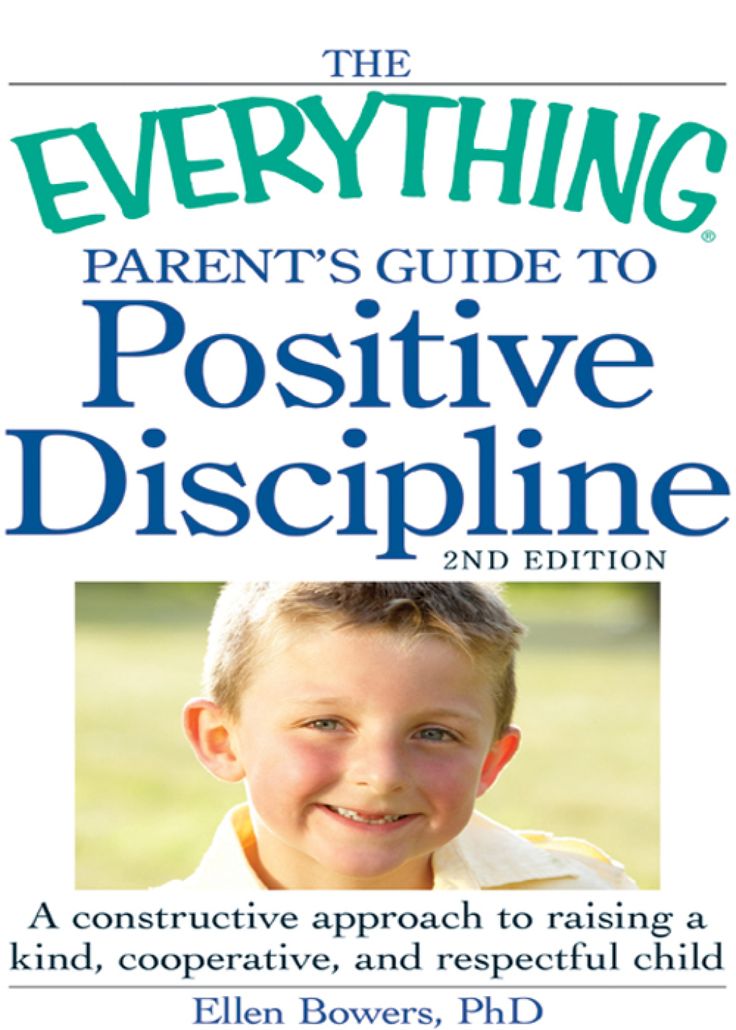
Talking back guarantees your attention, and some attention is better than none. Behavior issues like this may crop up during times of transition, such as a new baby in the house or a change in a parent's work schedule. Your child may feel ignored or abandoned and resort to back talk just to get you to take notice.
And remember that grade-schoolers don't always share everything that happens at school. It could be that your child is being bullied or having trouble adjusting to a new teacher.
Of course, when a child talks back, it's hard not to respond angrily. But a wiser course of action is to try to find out what's bothering your child, then teach him to express his difficult emotions in a more acceptable way.
What to do about back talk
Is it preventable? If certain situations almost always cause your child to talk back, see if you can help him problem solve ahead of time. For example, if he gets angry about having to clean up when he's in the middle of something, offer to give him a five-minute warning the next time you need him to do his chores.
Or maybe he protests bedtime every night not because he'd rather play or read a book, but because he's really afraid of the shadows moving across his wall. In that case, give him a flashlight to keep on his nightstand or put up shades to block the spooky shadows.
If he's tired and hungry, odds are he's going to act up if you choose that time to take him grocery shopping with you.
Advertisement | page continues below
Set limits ahead of time. Make sure your grade-schooler understands what is – and isn't – okay to say. So if saying that something "blows" is not allowed, or if you don't appreciate his sarcastic responses to earnest explanations, make that clear.
Let him know what behaviors are off-limits too. "It looks disrespectful when I talk to you and you roll your eyes. Please don't do that."
Do some sleuthing. Ask yourself if he could be imitating an attitude he sees in movies or on TV. Kids on comedy shows may get a big laugh when they talk back, but let him know it's not so funny in real life. Monitor the shows your child watches to make sure he's not picking up the wrong message.
Monitor the shows your child watches to make sure he's not picking up the wrong message.
Keep your composure. Don't overreact to your child's mouthing off or get into a power struggle over his choice of words or his tone. And, of course, never answer in kind. The best way to teach your grade-schooler to speak respectfully is to do so yourself. Tell him, "I think you can find a better way to say that."
A knee-jerk response ("Don't be such a brat!") won't set a very good example and will only add to his frustration.
Get behind the back talk. When your child verbally lashes out at you, let him know that you care about his feelings, even if you don't approve of the way he's expressing them. Parents sometimes skip this step and go right to scolding or disciplining a child, but it's important to let your child know you understand that he's mad or frustrated – and even help him label those feelings.
If your child thinks you don't get it, he may amp up his reaction to show you just how upset he is.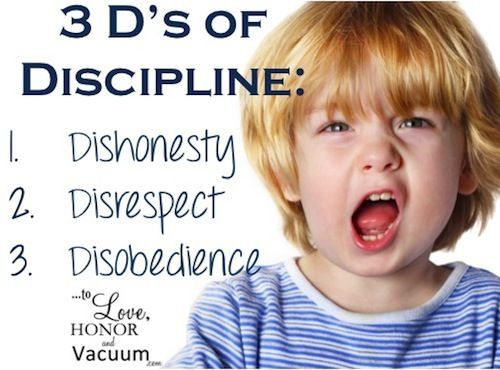 On the other hand, acknowledging his emotions ("Wow, you sound really angry about this") often removes you from the adversarial role.
On the other hand, acknowledging his emotions ("Wow, you sound really angry about this") often removes you from the adversarial role.
If you can get past his tone, you can focus on the message he's trying to convey. "Are you angry because you have to stop your game to pick up your socks? If that's the problem, you need to find a way to say so in a more respectful way."
When he can talk about the situation calmly, try to come up with a compromise you both can live with. Perhaps he can have a few minutes to wrap up his video game, then put his socks in the laundry basket, for instance.
Offer choices. If your grade-schooler has some control over the course of his day, he'll feel valued and be less likely to feel the need to assert himself in offensive ways. So give him plenty of appropriate opportunities to make choices for himself. Try asking, "Would you rather go to the park or the library this afternoon?"
Be sure to offer acceptable choices, and respect the ones he makes.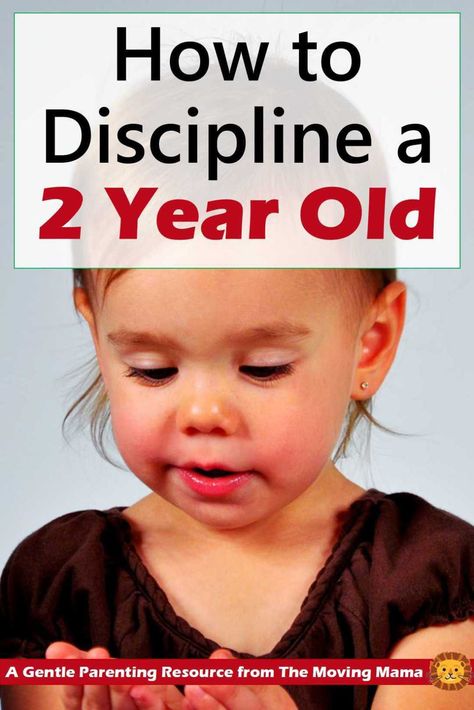 Don't give your child a choice between ice cream and fresh fruit for dessert if you really want him to eat the fruit.
Don't give your child a choice between ice cream and fresh fruit for dessert if you really want him to eat the fruit.
Know when to turn a deaf ear. If your grade-schooler becomes consistently nasty, don't negotiate, compromise, or even discuss his opinion with him. This will only reinforce the behavior.
Of course, you can't exactly abandon your child in the checkout line if he tries to pressure you into buying a candy bar. When faced with back talk in public, don't be intimidated into being a pushover (or a taskmaster, for that matter). Briefly and calmly let your grade-schooler know that being nasty – no matter where or when – doesn't cut it.
Find a quiet spot and tell him that if he does it again, there will be a consequence, like missing his favorite TV show or canceling an upcoming sleepover. Showing your child that you respect yourself too much to be treated this way will both model respect and earn it.
Find time to connect. If you think your child feels pushed around at school or pushed aside at home, it may be that all he needs is a little extra one-on-one time with you. Offset your child's negative energy with some attention: Go for a walk, read to him, or talk together while you share a snack after school.
Offset your child's negative energy with some attention: Go for a walk, read to him, or talk together while you share a snack after school.
Recognize and encourage good behavior. Kids who get noticed with hugs and compliments when they do something right, and who spend even a few minutes of positive, quality time with their parents every day are less likely to act out to get your attention.
How to punish children in order to achieve results and not injure them for life? 10 theses of a psychologist
Approximate reading time: 24 min.
-
100%
+
Embed code
Code copied
What are the most common mistakes parents make when trying to change their child's behavior through punishment? What parental motivations and methods of punishment are ineffective? And which ones can injure a child for life? Finally, is it realistic to raise a child in a total atmosphere of love without punishment? "Foma" asked the child psychologist Ilya Suslov, the father of six children, to talk about the theory and practice of punishment. Here are his 10 theses.
Here are his 10 theses.
1. Punishment is not necessarily physical or psychological abuse. We misunderstand its meaning.
In the philistine understanding, to punish a child means to cause him some kind of suffering, physical or psychological, to show violence towards him. But this is not true! Here even linguistics will help us: the root in the word punishment is the same as in the words say , indicate . That is learning, explanation. It can be formulated as follows: punishment is a reaction to improper actions. The reaction, the purpose of which is to prevent their recurrence.
But what exactly such a reaction should be depends on the specific circumstances. In many cases, it is enough just to talk to the child, to explain to him what and why we consider him wrong. And only if the conversations turn out to be useless, it is necessary to apply more stringent measures.
2. When deciding to punish a child, parents should be well aware of their motivation, because some reasons for punishment are unacceptable.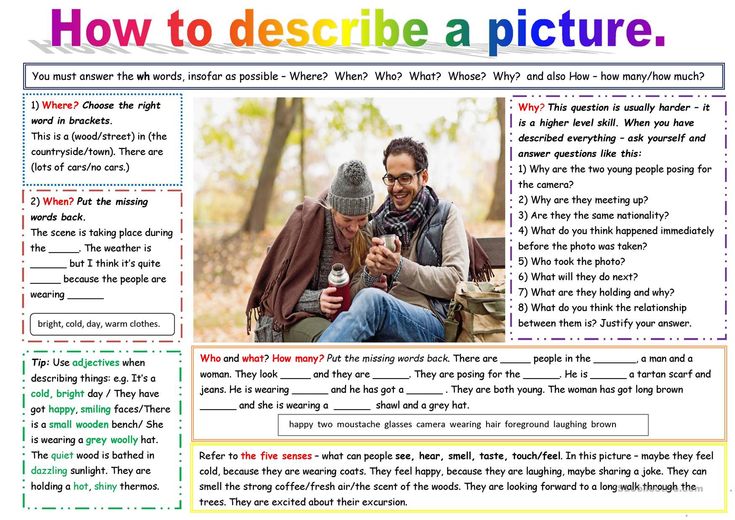
It must be clearly understood: we punish not so much "for what", as "why" and "for what". And with these “whys”, that is, with our internal motives, there are problems.
A very common variant is to release the accumulated discontent, irritation, anxiety in the form of aggression. We constantly experience various stresses - at work, in transport, in the family circle, in the information space ... The tension accumulates, and I want to drain it, but here is such a great reason: the child has messed up, so you can give yourself free rein. Of course, this does not happen consciously, but unconsciously.
Another option is a reaction to impotence. I set the rules for the child, explained why and for what, he broke them, he doesn’t understand words, I feel my powerlessness, I feel anxiety, I feel that my authority is collapsing; and a clear, orderly life turns into chaos. I am afraid of chaos, I am afraid of the fall of authority, therefore I punish the child in order to restore the previous order of things. Otherwise, I will have to admit that one or another of my demands were erroneous, unreasonable, impracticable. And this is a blow to self-esteem.
Otherwise, I will have to admit that one or another of my demands were erroneous, unreasonable, impracticable. And this is a blow to self-esteem.
The third option, which is rare nowadays, but used to be very common: what will people think if I don't punish them? In a traditional society (village, city communal apartment, when all life is in plain sight, when neighbors poke their nose into other people's business), this was a significant factor. But now, when family life is more often concentrated within the walls of an apartment or a house behind a high fence, this motive of fear of social disapproval has almost disappeared.
In recent years, physical punishment of children has become perceived as an unacceptable method of education. Psychologists tell us about the trauma that such methods of parenting cause. Does this mean that the childhood of children who were sometimes spanked, slapped on the back of the head, put in a corner - necessarily an unhappy childhood? We decided to discuss these issues in the issue of the District Council podcast.
Psychologists tell us about the trauma that such methods of parenting cause. Does this mean that the childhood of children who were sometimes spanked, slapped on the back of the head, put in a corner - necessarily an unhappy childhood? We decided to discuss these issues in the issue of the District Council podcast. The fourth option is anger at a child who has done something and does not repent, and moreover, is rude! Well, or, in any case, it seems to the parent that he is rude. This happens quite often, and we are talking not only about adolescent children, but also about babies. There is even a special term to describe this phenomenon - adultomorphism , that is, when a parent gives the child the properties of an adult. It occurs at about three years old, that is, when the child begins to speak. Previously, he, a baby, a baby, a fool, was treated condescendingly, tolerated almost any of his mistakes and antics, but now he began to talk, and says is : “You are bad, bad”, “I hate you!”, “I will kill you!”
The child says this without at all putting into these words the meaning that sounds, they simply express their dissatisfaction, often copying adults who do not watch their words.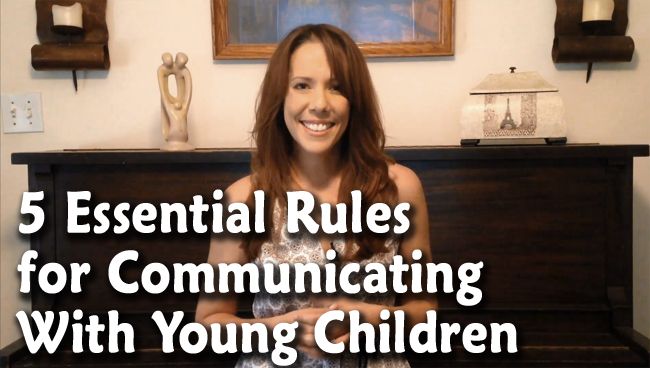 And parents are outraged by such blatant disrespect for their child - and automatically react aggressively, not realizing that they themselves are behaving like offended children at that moment.
And parents are outraged by such blatant disrespect for their child - and automatically react aggressively, not realizing that they themselves are behaving like offended children at that moment.
3. There are ways to realize what drives you at the moment, and stop in time if you have succumbed to emotions.
There is such a concept in psychology - awareness. That is, a rational understanding of what, why you are doing now and what the consequences may be. And how do you know if you have such awareness? One of the signs of mindfulness is the ability to pause between the provoking event and the response to make a decision, with an understanding of the possible consequences for which one is ready to bear responsibility. This is also where we differ from animals: they have a reaction immediately after the stimulus, and a person can stop, think and choose a way to respond. Unfortunately, this does not always work out.
If a person does not have awareness, if in response to something he immediately turns on rage and anger or tears of pleasure, then this indicates the presence of serious personal problems.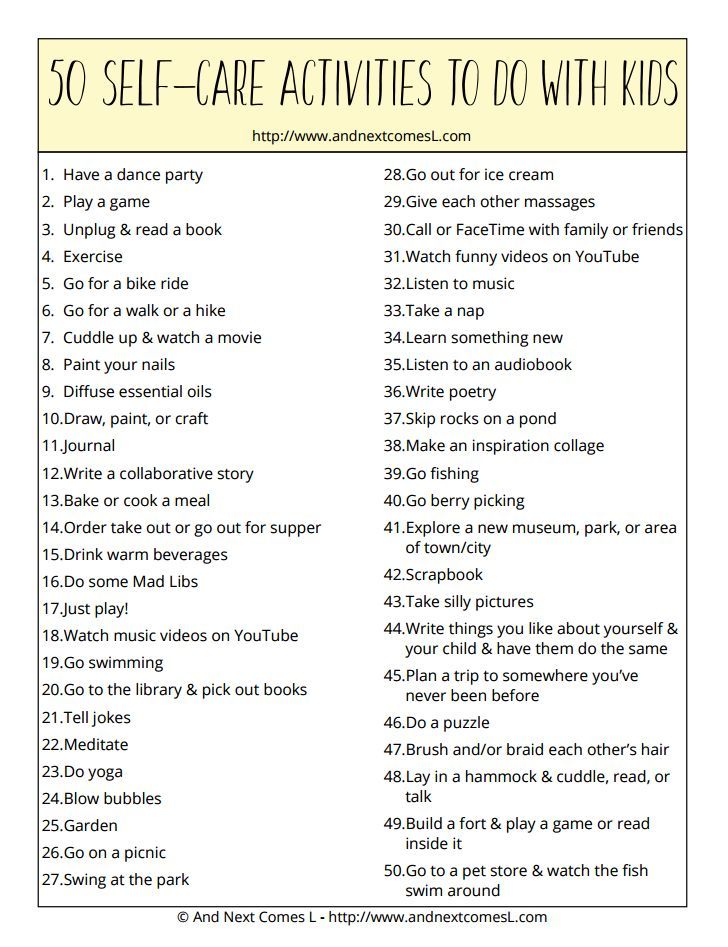 Both psychological and spiritual. Moreover, sometimes these problems accompany a person all his life, and sometimes they turn on suddenly. Everything was fine, the person considered himself calm and adequate, but the child was three years old, he began to behave boldly, “boorishly” - and the person “bridged”, he has outbursts of rage. Where did it come from? It did not spontaneously arise from the air! This means that it used to sit inside, sleep, wait in the wings, and the child turned out to be a kind of catalyst for the process. Psychologists call this encapsulated childhood or adolescence trauma.
Both psychological and spiritual. Moreover, sometimes these problems accompany a person all his life, and sometimes they turn on suddenly. Everything was fine, the person considered himself calm and adequate, but the child was three years old, he began to behave boldly, “boorishly” - and the person “bridged”, he has outbursts of rage. Where did it come from? It did not spontaneously arise from the air! This means that it used to sit inside, sleep, wait in the wings, and the child turned out to be a kind of catalyst for the process. Psychologists call this encapsulated childhood or adolescence trauma.
Of course, if you are aware of such a problem in yourself, you need to solve it - both by spiritual means (confession, prayer) and psychological ones (introspection, reflection, consultation with a psychologist, work with a psychotherapist). Not always, however, everything is so terrible, sometimes there is enough of one’s own strength to, having realized such “features” in oneself, to cope with them, adjusting one’s reactions.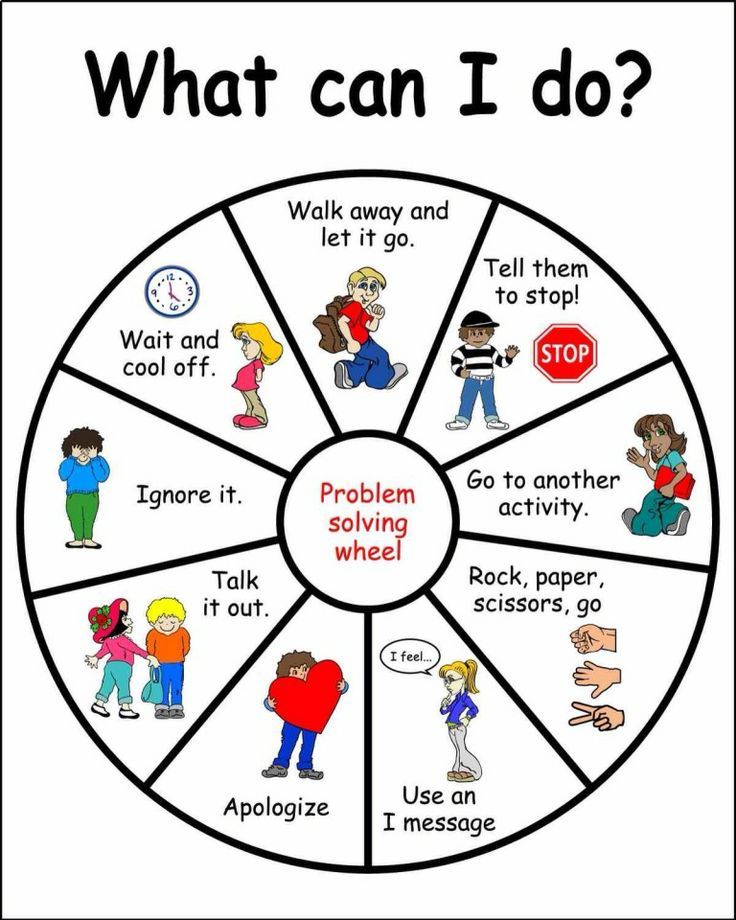
How to deal with this at specific moments when you are ready to unleash all your rage on the delinquent child? There are methods.
- First, you need to move as far away as possible so that it is impossible to hit the child involuntarily. Or put your hands in your pockets. (According to one of the strictest juvenile justice systems in the Scandinavian countries, it is allowed to whip a child with a towel so that there are no marks, otherwise, if there are bruises, there is a high probability of removing the child from the family).
- Secondly, if you managed to trace such an outburst of anger in yourself, then it is advisable to leave the place of conflict. Move to the window - look into the distance or go, for example, to the bathroom, wash your face with cold water - this helps to distract and calm down. A believer, of course, should pray, for example, the Jesus Prayer. This, of course, does not give one hundred percent guarantees, but often helps to recover.
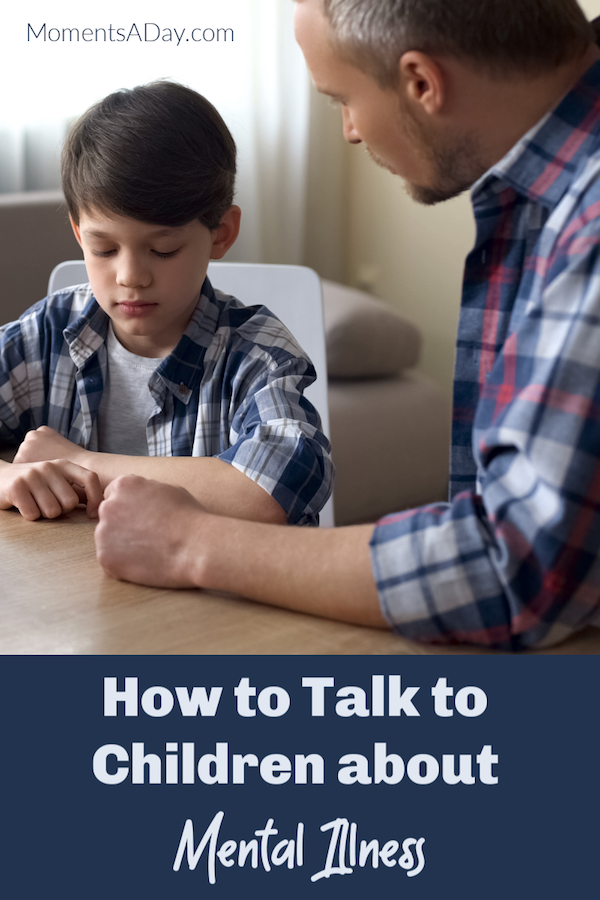
- Thirdly, at such moments one should not look the child in the eye. He should not see the angry look of the parent - this is fraught with negative consequences for the psyche, and sometimes visual impairment. It is better to look at the icons, if they are, or up, to the side.
- Fourth, there are elementary tricks: mentally count from one to twenty and back, breathe slowly and deeply, imagine some kind of strongly emotional picture in your mind.
- Finally, when the first outburst of rage is suppressed and a conversation begins with the child about his offense, it is very important to talk about your feelings, about your emotional reaction to what happened, but to speak impersonally. That is, “how I don’t like to see this mess!”, And not “you, Vasya, scattered everything here!”, “It’s wrong to take other people’s things without asking, it’s very unpleasant for me!”, And not “yes, how You dared, Vasya, to take my tablet without asking!
That is, a child, hearing an impersonal reproach, makes an effort in his mind, though not difficult, but still an effort to address it to himself. In addition, he learns how the parent feels. And such an impersonal manner of speaking prevents anger from flaring up again, because it forces you to think what you are saying, to translate those who are ready to break out of the language of rudeness into a more humane form. And that means controlling yourself.
In addition, he learns how the parent feels. And such an impersonal manner of speaking prevents anger from flaring up again, because it forces you to think what you are saying, to translate those who are ready to break out of the language of rudeness into a more humane form. And that means controlling yourself.
4. Punishment, even if it is reasonable and just, can produce long-term negative consequences, so it is necessary to prevent the transformation of a spiritual wound into trauma.
Suppose a child was punished not under the influence of emotions, but consciously, reasonably, this is not some kind of prohibitively cruel punishment, moreover, it even turned out to be effective, the child corrected his behavior. Does this mean that you can calmly exhale, that everything is now in order? No, it doesn't. Right now, when everything seems to be over, you need to look very carefully at the child.
Were there any negative consequences after the punishment? Let's say we got what we wanted: he started making the bed. But, in addition, he began to bite his nails or stopped laughing, or school grades deteriorated sharply, or some other changes. All this is cause for concern.
But, in addition, he began to bite his nails or stopped laughing, or school grades deteriorated sharply, or some other changes. All this is cause for concern.
The fact is that punishment can have long-term effects that can manifest themselves immediately, or after decades. Often, adults come to psychologists with problems caused by a trauma experienced in childhood due to punishment. With time, the child may even forget this very situation or reason, but the mental trauma remains and periodically inflames.
How does trauma occur? When a child experiences a shock: such a wonderful mother or father suddenly showed aggression, and for him it is a disaster, his whole world is collapsing, this is an existential horror for him. It's the same as if a bunny, a cute bunny from a cartoon or a fairy tale, suddenly bites you. It's a disaster! It doesn't happen, it shouldn't have happened! If a bunny can bite, it means that the floor under you can fail, the ceiling can fall, the world can collapse.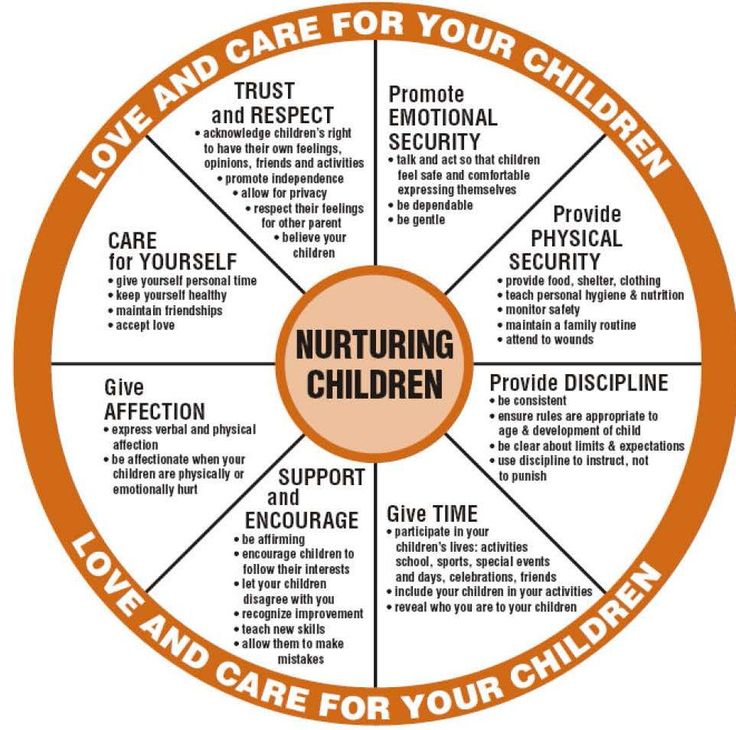 .. Some children can perceive the very fact of punishment in such a way that it undermines confidence in the world, in people. A fear settles in the soul that anything at all can happen at any moment, and often the child (and then the adult) does not realize where exactly this anxiety started in him.
.. Some children can perceive the very fact of punishment in such a way that it undermines confidence in the world, in people. A fear settles in the soul that anything at all can happen at any moment, and often the child (and then the adult) does not realize where exactly this anxiety started in him.
It also happens that a child remembers everything, but simply does not say it out loud. But he harbored a grudge against his parents, trust in them was undermined. Here, after all, it is also important that a child, especially a small one, perceives everything binary, without semitones. This is called "bipolar idealization", when something is either unconditionally good or unconditionally bad.
By the way, for the occurrence of such an injury it is not even necessary that the child himself be punished. Sometimes, in families with many children, it is enough that a child sees how too severely or unfairly (mainly physically, or for a long time prohibiting the use of gadgets), a brother or sister is punished, and feels horror from this. In such cases, he usually tries to behave perfectly so that this does not happen to him, but this leads to the fact that such children become timid, lack of initiative, are afraid to raise their hand in class, even if they are sure that they know the exact answer. Which, unfortunately, then continues into adulthood.
In such cases, he usually tries to behave perfectly so that this does not happen to him, but this leads to the fact that such children become timid, lack of initiative, are afraid to raise their hand in class, even if they are sure that they know the exact answer. Which, unfortunately, then continues into adulthood.
I repeat: the consequences of such injuries may appear decades later, or they may immediately. For example, a child becomes nervous, twitchy, somatic reactions appear - dermatitis, asthma, enuresis, and so on. Parents are actually to blame for many childhood psychosomatic illnesses. The children's poet Agniya Barto, not being a physician, said, however, very correctly: "If the child is nervous, the parents should be treated."
| Read also:
What to do if a child of 7 years old is lying?
There are also consequences for the psyche: as a reaction to punishment, various accentuations arise, that is, the hypertrophied development of certain character traits - lies, aggressiveness, suspicion, cowardice, cruelty, greed, and so on. Not to mention such obvious mental disorders as sadism and masochism.
Not to mention such obvious mental disorders as sadism and masochism.
What must be done so that the wound inflicted by punishment does not turn into an injury? Here the story is the same as with ordinary physical wounds: if not processed, not healed, they can fester, sepsis will begin ... But how to process and treat wounds in the soul?
It is necessary to talk with the child, discussing with him what happened, it is necessary to clarify what he thought, felt as a result of the action and what - after the punishment (it is important that he speaks out, throws out his emotions, otherwise everything unspoken will go inside, and the deeper the harder it will be to pull it out). It is important to tell him that he is unconditionally loved, that after the punishment they did not treat him worse, that his parents believe in him. Moreover, the emphasis here should be placed not on the perfect misconduct (otherwise such a reminder would be an additional trauma), but on parental love for him, on the fact that now everything should be fine.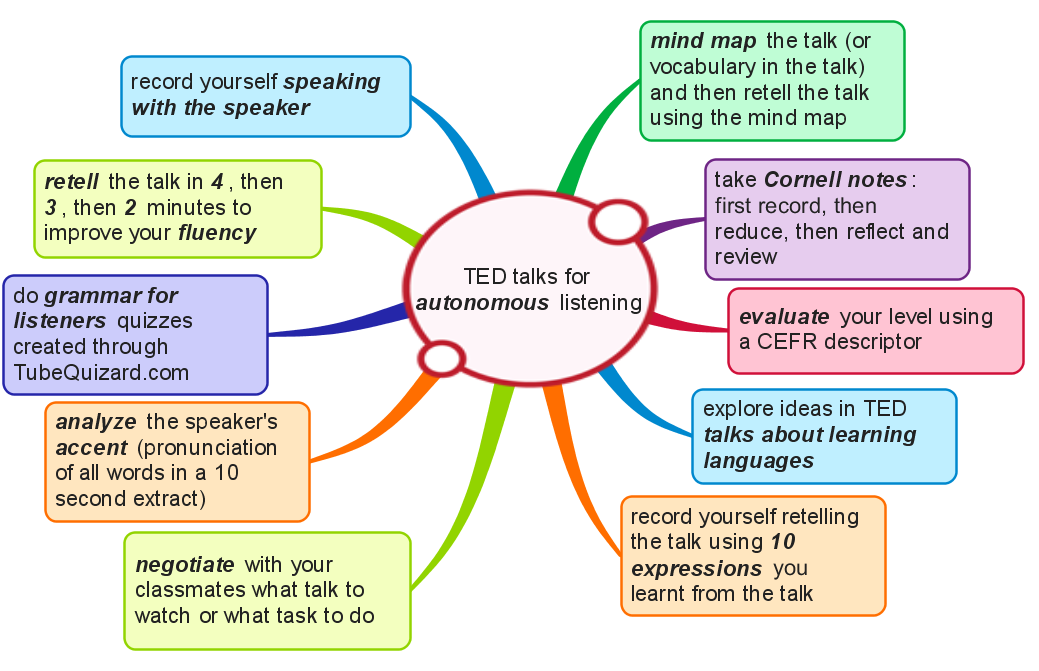 And such conversations should not be postponed until later, they should be held immediately after or as soon as negative changes are noticed.
And such conversations should not be postponed until later, they should be held immediately after or as soon as negative changes are noticed.
5. If the punishment has not reached the goal, the child's behavior has not changed, then it cannot be repeated, but new approaches to the problem must be sought.
First of all, we must clearly understand: why do we punish children at all? We perform the function of a policeman, punish the violation so that the law triumphs? We act according to the scheme: such and such a misconduct implies such and such a punishment? If so, then nothing good will happen, such “education” turns into training and barracks.
Or do we punish in order to correct the child, to teach him not to repeat mistakes, to make him better? In this case, there should be no schemes, no “punishment code”. If the child is guilty, we punished him, but there is no result - what does this tell us? First of all, that the chosen method of influence turned out to be wrong.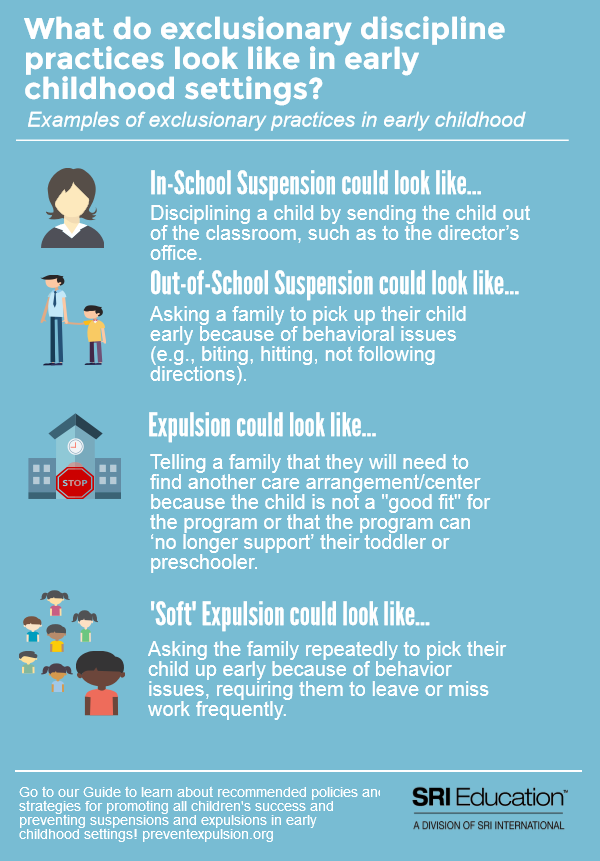 Why? Maybe because the child did not realize his guilt, we were not able to clearly explain this to him? Maybe because he considers the method of punishment applied by us to be too cruel, unfair and does not correct his behavior to spite us, as a sign of protest? Maybe the chosen punishment in itself does not really hurt the child? For example, as a punishment, we left him at home, did not take him on a tour - and he did not really want to go there.
Why? Maybe because the child did not realize his guilt, we were not able to clearly explain this to him? Maybe because he considers the method of punishment applied by us to be too cruel, unfair and does not correct his behavior to spite us, as a sign of protest? Maybe the chosen punishment in itself does not really hurt the child? For example, as a punishment, we left him at home, did not take him on a tour - and he did not really want to go there.
In any case, a failed punishment cannot be mechanically repeated. We need to look for other approaches to the child, look for some other methods. Here is an example: my children often quarreled over some toy that someone took, and the rest immediately wanted to play with it. Lying, no one needed it, but as soon as one took it, a contender immediately arises ... quarrels, fights, complaints, insults. I scolded, punished - everything was useless. Until, finally, he introduced a clear rule: whoever took a common toy first has the right to play, and the rest are forced to wait for their turn, it cannot be taken away. As they say, whoever gets up first gets the slippers. When analyzing the incident, I immediately appealed to the previously announced rule, and the selector had nothing to object to. In the end, it quickly worked, the quarrels stopped, because the children in this situation had no room for maneuver, for manipulation. There is a strict rule, it is respected, period.
As they say, whoever gets up first gets the slippers. When analyzing the incident, I immediately appealed to the previously announced rule, and the selector had nothing to object to. In the end, it quickly worked, the quarrels stopped, because the children in this situation had no room for maneuver, for manipulation. There is a strict rule, it is respected, period.
Further, why don't punishments work yet? Any punishment is a sanction for violating some parental prohibition. And these prohibitions themselves - how reasonable are they, how fair, how feasible? Is this not a reason to take a sober look at our requirements for children and correct what is obviously excessive or unfair? For example, we have set a rule: play on the tablet for no more than 15 minutes a day. But the child is six years old, he still does not really understand what 15 minutes is. Naturally, he will violate the “regulations”, we will punish, there is no sense in punishment, because just as he did not understand about 15 minutes, he will not understand, he has not grown up yet.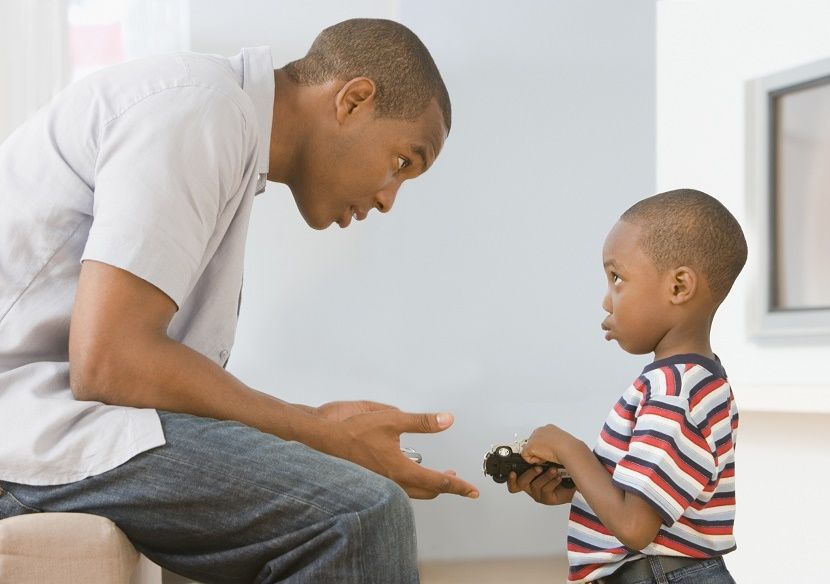 Well, in general, 15 minutes is very little, even for a six-year-old. And 30-45 minutes - for a teenager. They do nothing during this time, only angry and annoyed.
Well, in general, 15 minutes is very little, even for a six-year-old. And 30-45 minutes - for a teenager. They do nothing during this time, only angry and annoyed.
Or we set a strict rule for our eighth-grader daughter: to come home from a walk no later than eight o'clock in the evening. But it can be very difficult when she communicates with her friends, when they go somewhere together, go to visit someone. Many are allowed to walk until nine or later, and only she - until eight. Naturally, she will periodically violate, and not even necessarily in spite of mom and dad, but simply because she really wants to. And no matter how you punish, there will be no sense.
Bottom line: firstly, clearly talk everything over with the child both before punishment (justifying your demands) and after (restoring relations). Secondly, to adjust their requirements, excluding those that are clearly difficult to fulfill. Thirdly, look for new, sometimes unexpected approaches to children.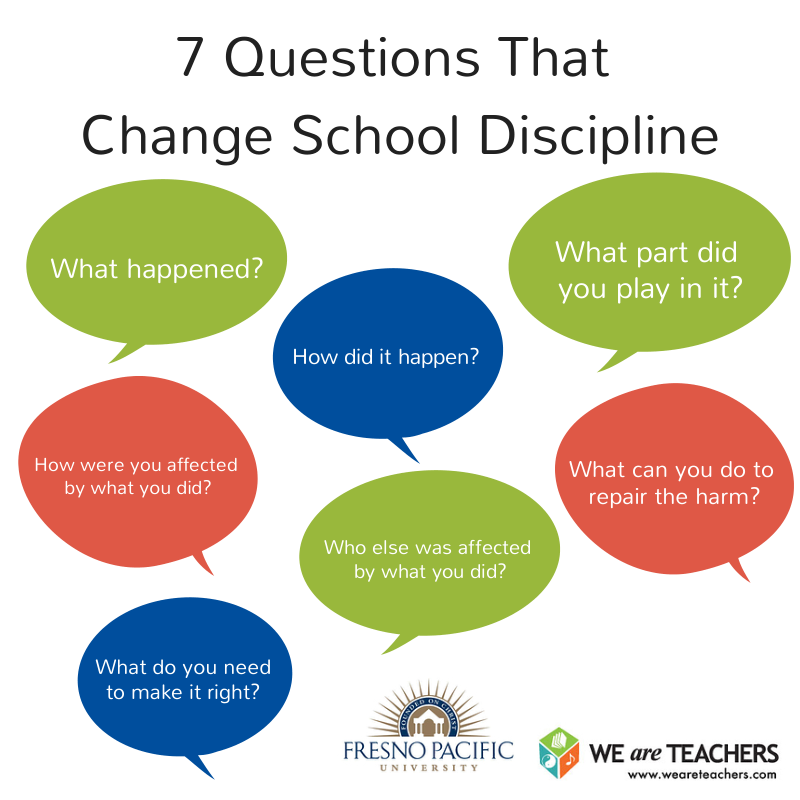 Don't turn into a broken record.
Don't turn into a broken record.
6. An effective punishment can be the “method of natural consequences” – when no one organizes troubles for the child on purpose, but they arise as a result of his behavior, and the child himself is aware of the causal relationship.
In upbringing, there are situations when, in order to understand what is right, the child first has to feel what will happen if he does not act the right way. And not because adults will beat him on the hands, but simply because of natural consequences. For example, if he got angry and broke his favorite toy, then the toy is no more. Don't expect your parents to immediately run to buy you the same new one (parents, don't do this!). They told you not to climb into the nettles, but you climbed, burned yourself - and who, one wonders, is to blame? The role of parents here is only in not eliminating these natural consequences (of course, if they are not dangerous to life and health: after all, it is hardly worth allowing a child to stick nails into a socket for pedagogical purposes).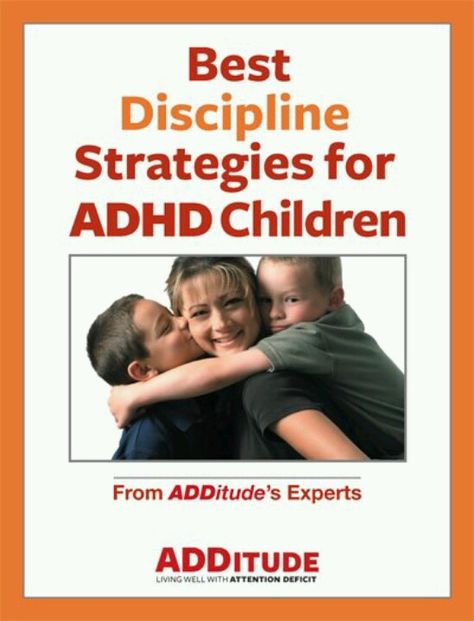
Natural consequences can be different - both natural (burned by nettles, pricked with a needle), and social (overslept, missed the bus, which means that I did not go on an interesting excursion with the class). But these consequences can also stem from the fact that parents clearly keep their promises.
Here is another personal example. When my eldest daughter was in the second grade, she was going to the pool for a very long time (and besides her, I also took my younger children there). We were often late, the coach scolded us, I scolded my daughter, there was no sense. And then one fine day I told her: you have ten minutes left, after that we will leave, and if you do not have time, you will stay at home. What is ten minutes, the second grader already understands perfectly, unlike the kids. The daughter was defiantly stubborn, playing for time, thinking that this was just another threat from her father. As a result, at the stated time, I just put the younger ones in the car, and we drove to the pool.
| Read also:
How can I stop lashing out at my child?
Naturally, in order for this method to work, it is first necessary to explain very clearly to the children what is required of them, why and what will happen if these requirements are ignored. That is, the "rules of the game" must be absolutely clear and must be reasonable. I did not wait for my daughter at that time to teach me to observe discipline and agreements. And if she continued to behave like that, then I still would not have waited to bring other children on time, and not just out of mischief.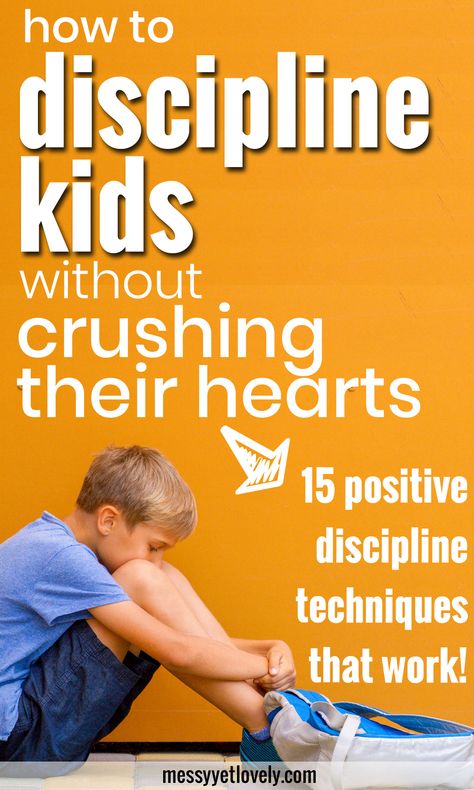 Seven do not wait for one, as they say. It’s not a fact that she understood it then, but it worked, and today she knows how to get out on time to do her business.
Seven do not wait for one, as they say. It’s not a fact that she understood it then, but it worked, and today she knows how to get out on time to do her business.
Or, say, a child was careless with his expensive smartphone, as a result it failed. They don’t buy the same one for him, but buy a simple push-button dialer or give away their old one. Not because the parents are miser, but primarily in order to face the consequences of their negligence, and these expenses were not planned in the family budget.
This method is also useful because it teaches the child: the world is not organized the way you want, the world should not adapt to your wishes, but you should take into account your capabilities and external circumstances. The train will not wait, the plane will not be delayed for you, money will not appear out of thin air, the water is wet, the tea is hot, the rules must be followed. And the unpleasant consequences are not because you are specially brought up that way, but simply because this is how life works.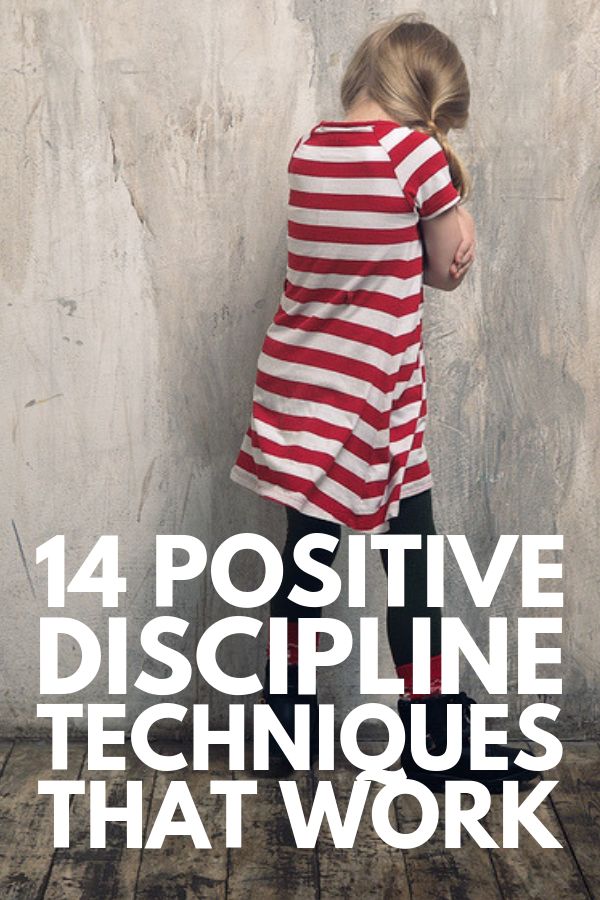
7. Punishments are inextricably linked with prohibitions: they are simply sanctions for their violation. Therefore, in order not to abuse punishments, it is necessary that the prohibitions be reasonable, just and enforceable.
In the life of a child (and an adult) there are many prohibitions. Don't do this, don't do that, otherwise there will be problems. It's unavoidable. Many prohibitions are dictated by security, hygienic, and medical considerations. But it is important that these prohibitions are really reasonable, and not based on some kind of parental fears, stereotypes and prejudices.
When I say that prohibitions must be reasonable, I mean understandable from the point of view of the child. When he is very small, two or three years old, then some requirements may not be argued, it is enough for the baby that mom and dad said: this is how it should be. You need to wash and brush your teeth before going to bed, you need to ask for a potty, you need to eat porridge in the morning. But when the child gets older, when his thinking and speech develop, he already begins to ask questions: why? Why can't you pull Muska's tail? Why can't you put your fingers in a socket? Why should you brush your teeth? And parents need to look for arguments, more precisely, to translate our adult arguments into a language understandable to the baby. You can’t pull Muska, because it will hurt her. Do you feel bad when it hurts? So does she! Do not stick your fingers into the socket, otherwise you will be electrocuted, and it will be very painful. Teeth need to be brushed because dirt accumulates on them, and dirt makes them hurt. And this is enough for the kid, he does not need to expound physics and microbiology. He gets an explanation that is understandable at his level. To enhance the effect, you can show photos and videos from the Internet.
But when the child gets older, when his thinking and speech develop, he already begins to ask questions: why? Why can't you pull Muska's tail? Why can't you put your fingers in a socket? Why should you brush your teeth? And parents need to look for arguments, more precisely, to translate our adult arguments into a language understandable to the baby. You can’t pull Muska, because it will hurt her. Do you feel bad when it hurts? So does she! Do not stick your fingers into the socket, otherwise you will be electrocuted, and it will be very painful. Teeth need to be brushed because dirt accumulates on them, and dirt makes them hurt. And this is enough for the kid, he does not need to expound physics and microbiology. He gets an explanation that is understandable at his level. To enhance the effect, you can show photos and videos from the Internet.
But the older the child gets, the more difficult the argument must become. And here there may be a gap between the previous, "baby" explanations and the current level of development of the child.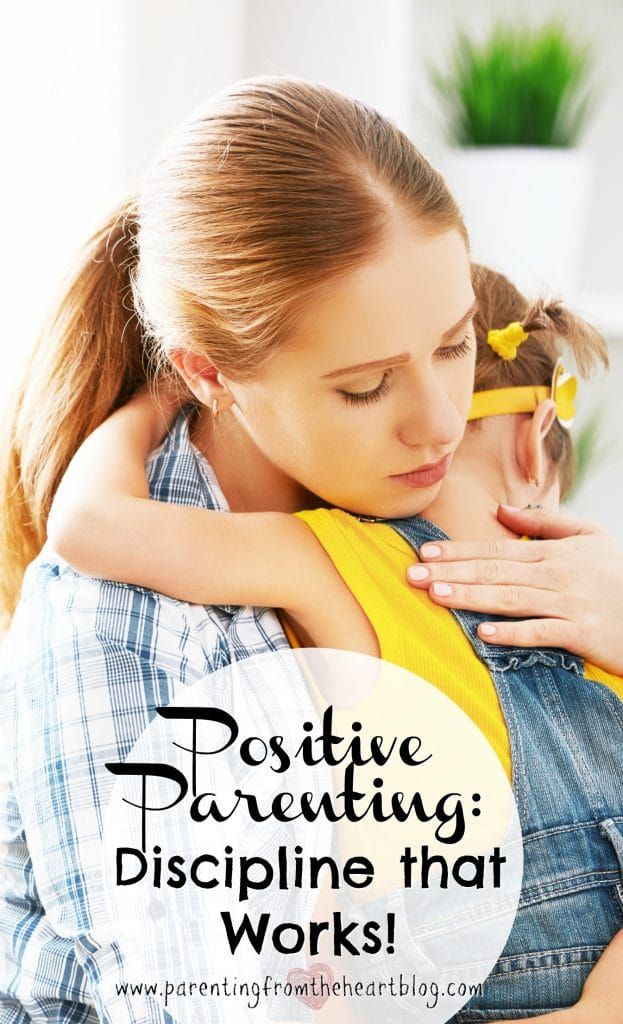 And parents often do not notice this gap - and they are surprised why the child began to sabotage what he used to unquestioningly perform.
And parents often do not notice this gap - and they are surprised why the child began to sabotage what he used to unquestioningly perform.
In general, this suggests an analogy with the traditional church conception of the stages of a person's relationship with God: slave, mercenary, son. A slave follows his master's orders simply out of fear of punishment. The mercenary performs in order to receive the promised payment, that is, he has in mind some kind of benefit. And the son carries out his father's orders because he loves him and understands that these orders are directed to his good, and are not given out of tyranny. It's the same story with parental restrictions. First, the children brush their teeth, because they said so, they said “it is necessary”. Then - because they were satisfied with the explanation about the bacteria that destroy tooth enamel - and caries occurs. And finally - simply because it has become a habit and has become an internal need of an adult, because you feel uncomfortable with uncleaned teeth.
I can offer another analogy. Take the Old Testament, it established many rules that the Jews had to follow. These rules can be compared with traffic rules - observe, otherwise you may suffer or be fined. And the New Testament within the framework of this analogy can be expressed in such words: drive the car in such a way as not to harm yourself or other road users. That is, act in love. But in order to do this, in order not to really harm anyone, it is better to comply with those very traffic rules. This is exactly how grown-up children should have an attitude towards parental prohibitions: as a way not to harm anyone, including themselves, that is, ultimately, as a manifestation of love.
But the rationality of the prohibition is not only some kind of logic contained in it. It is also consistent with the realities of life. I have already given the example of an eighth grader who is forced to return home no later than eight. In itself, the requirement to return by a certain deadline is reasonable, but that for a 14-year-old teenager this deadline is set exactly as eight hours is unreasonable, because it does not meet the realities and demands.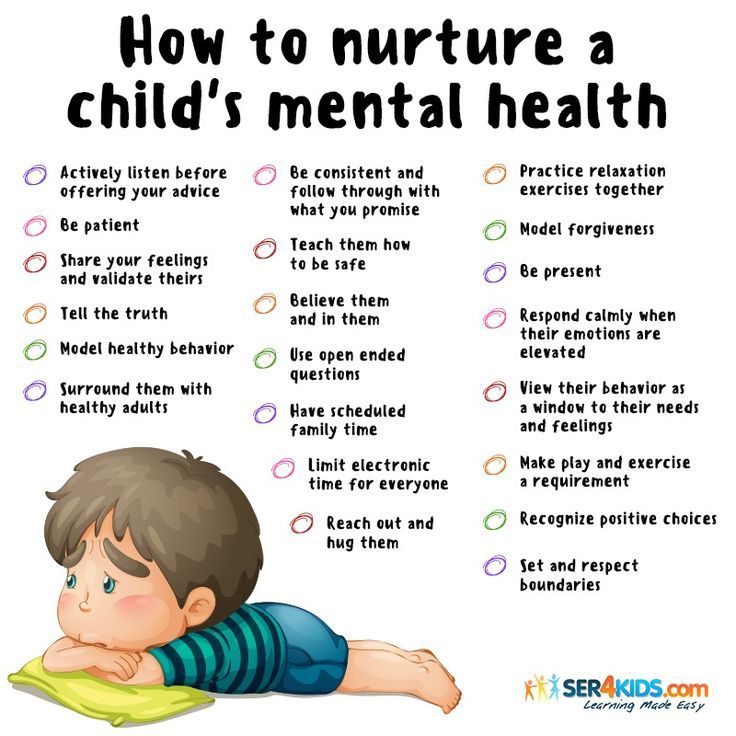 After all, everyone else is allowed to return later, and the girl is forced to suffer, she is uncomfortable, ashamed in front of her peers. Or, for example, some parents, having read about the dangers of computer games, do not buy smartphones for their teenage children, but buy simple dialers. It is out of fear that gambling may happen. Is the fear of gambling in itself reasonable? Yes, there is such a threat. But is the prohibition based on this fear reasonable? No, because it only creates severe psychological problems for the child, and besides, it does not eliminate the threat of gambling, because such a child, in order to play, will humiliate himself, beg for a smartphone from his peers, and even hide it from his parents.
After all, everyone else is allowed to return later, and the girl is forced to suffer, she is uncomfortable, ashamed in front of her peers. Or, for example, some parents, having read about the dangers of computer games, do not buy smartphones for their teenage children, but buy simple dialers. It is out of fear that gambling may happen. Is the fear of gambling in itself reasonable? Yes, there is such a threat. But is the prohibition based on this fear reasonable? No, because it only creates severe psychological problems for the child, and besides, it does not eliminate the threat of gambling, because such a child, in order to play, will humiliate himself, beg for a smartphone from his peers, and even hide it from his parents.
8. Prohibitions should not only be explained, but also somehow compensated, the child should not feel left out.
Suppose the prohibition is really reasonable, and the child (especially if we are talking about teenagers) understands your logic.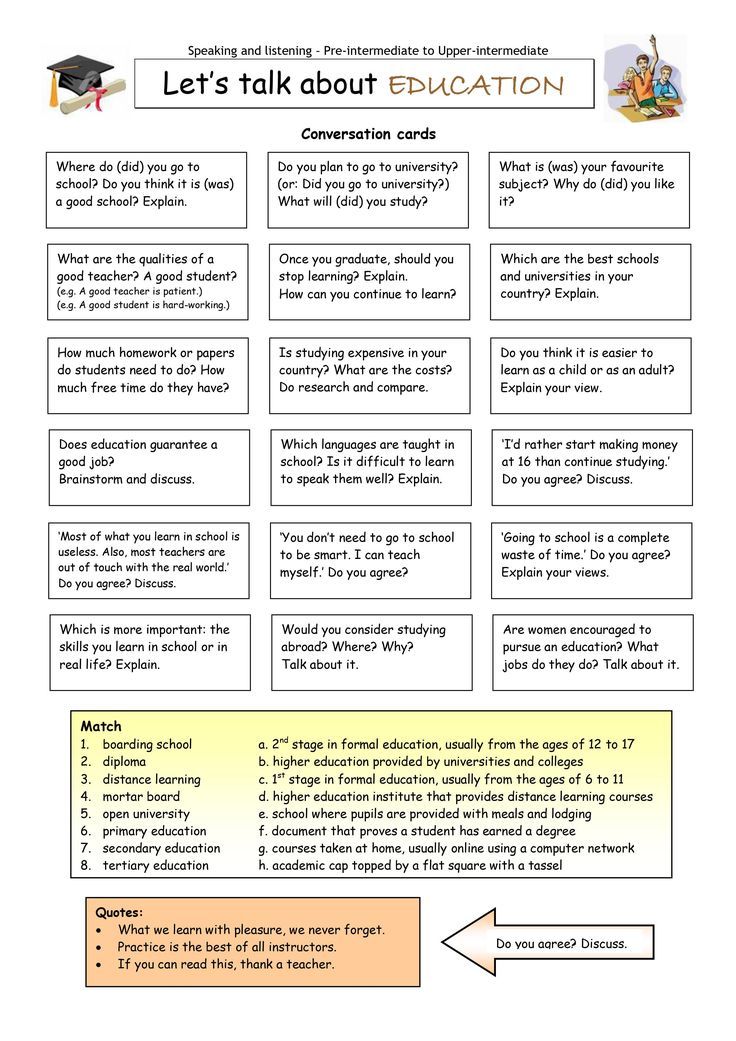 But all the same, this prohibition upsets him, all the same, he experiences negative emotions that will somehow affect your relationship with him. They will especially strongly affect if you do not pay attention to his sadness or, even worse, devalue it, such as “nothing, you will endure”, “you will trample on”.
But all the same, this prohibition upsets him, all the same, he experiences negative emotions that will somehow affect your relationship with him. They will especially strongly affect if you do not pay attention to his sadness or, even worse, devalue it, such as “nothing, you will endure”, “you will trample on”.
Therefore, it is better to find some kind of compensation. Depriving a child of one joy, you can organize another for him. For example, a child wants to bathe, but he has just been ill, and doctors do not recommend it. If you just tell him: no, we will not go swimming, we will stay at home, he will understand, but he will be upset. And it would be better to say: unfortunately, we will not go to the river because of illness, but we can go to the circus or the zoo. Or in the forest for mushrooms. Or anywhere else he wants.
In general, the closer your relationship with your child is, the better you understand him, the better you know his hobbies, the more opportunities you have to please him with something, the more you can offer him alternatives for interaction.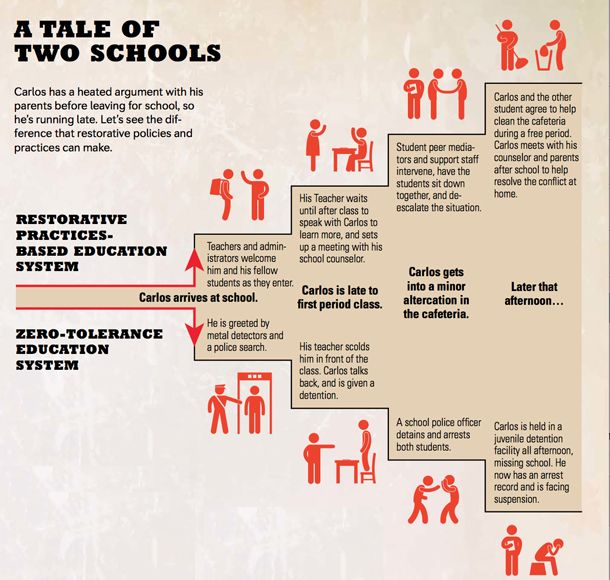 By the way, this also applies to punishments: the better you know your child’s life, the more options you see for temporarily depriving him of something significant, limiting him in some way, without causing too serious injury. Many parents beat their children for a reason: they simply do not know how to punish them differently, how else to get through to the child.
By the way, this also applies to punishments: the better you know your child’s life, the more options you see for temporarily depriving him of something significant, limiting him in some way, without causing too serious injury. Many parents beat their children for a reason: they simply do not know how to punish them differently, how else to get through to the child.
9. There are people who are fundamentally against prohibitions and punishments, who are sure that in education one can do without it, that only love and understanding are enough. But they are very wrong.
All extremes are bad. At one end of the spectrum is a tough, and sometimes cruel, upbringing, when children are punished (both physically and morally) when they are tortured with unreasonable prohibitions. And on the other side - a kind of conniving, "liberal" education, when nothing is forbidden, but only exhorted to behave well.
This also ends sadly. The child does not understand what is possible and what is not, does not see boundaries, does not consider other people.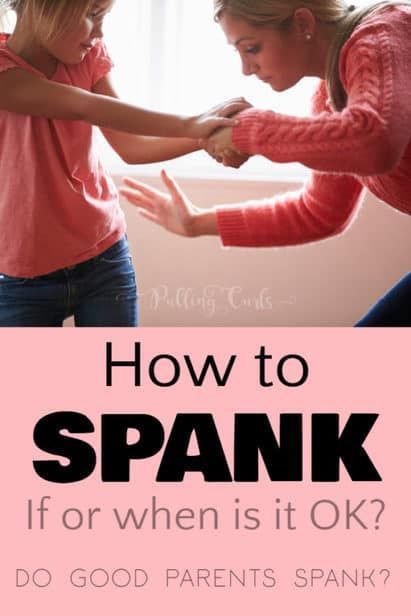 Not because he is such a monster, but simply because he was not taught this at the age when all this should have been learned. That is, from early childhood. But in early childhood, a child does not really understand rational arguments, somewhere from the age of three, he stops behaving well just because mom or dad wants it that way. And you have to somehow explain, motivate, persuade and compel. A child, growing up, constantly checks the boundaries of what is acceptable. And if he only identifies them verbally, but does not react in any way to their violation, then he will not feel the boundaries.
Not because he is such a monster, but simply because he was not taught this at the age when all this should have been learned. That is, from early childhood. But in early childhood, a child does not really understand rational arguments, somewhere from the age of three, he stops behaving well just because mom or dad wants it that way. And you have to somehow explain, motivate, persuade and compel. A child, growing up, constantly checks the boundaries of what is acceptable. And if he only identifies them verbally, but does not react in any way to their violation, then he will not feel the boundaries.
What happens with such upbringing? First, the authority of the parents is destroyed, because if it turns out to be possible to act contrary to their exhortations, then why reckon with them? Parents naively hope that the child will obey them, because he loves, but they do not realize that this requires real, high love, and not just the biological attachment of the cub to the mother. And high love must grow, this is an adult feeling, and in order for it to grow, the right upbringing is necessary: on the one hand, love, acceptance, warmth, and on the other hand, rules, boundaries and compulsion to comply with them.
Then, when the child grows up enough (that is, he is already a schoolboy), huge problems begin with peers and teachers, because he is not accustomed to feel and respect other people's boundaries, as well as obey general requirements, and also reckon with the desires and characteristics of other people not accustomed. He is transferred from school to school, he does not take root anywhere, because nowhere are they ready to endure this.
And when such a victim of a "liberal" upbringing becomes an adult, then under the weight of the accumulated problems he breaks down: alcoholism, drug addiction, debauchery begin with accompanying infantilism.
Meanwhile, proper upbringing consists precisely in, firstly, acquainting the child with the realities of life, and secondly, teaching them to cope with them in the most optimal way. But in order to achieve this, instructions alone are not enough - you need to communicate your wishes, requirements and monitor their observance. And here it is impossible to do without prohibitions and punishments. As long as they don't become an end in themselves.
10. There are no doctrinal grounds for believing that the Christian pedagogical tradition insists specifically on corporal punishment.
I must say right away: in fact, in the Orthodox environment there is an opinion that children need to be flogged, that this is, they say, a biblical requirement.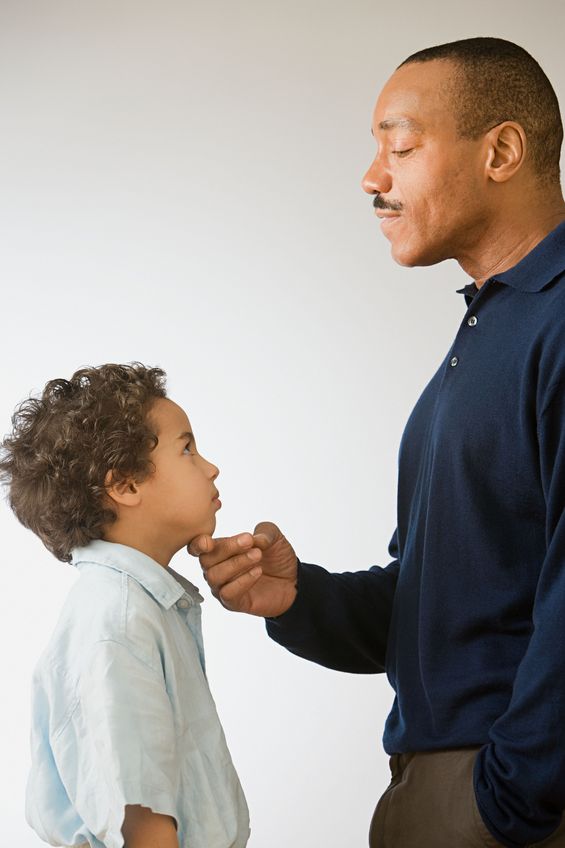 I know both laity and priests who think this way and act this way with their children. But this is not an evangelical imperative, but only a historically formed idea.
I know both laity and priests who think this way and act this way with their children. But this is not an evangelical imperative, but only a historically formed idea.
It goes back to several places from the Holy Scriptures, first of all to the Book of Proverbs of Solomon, where in the Russian synodal translation we read in black and white: He who pities his rod hates his son; and whoever loves, he punishes him from childhood (Prov. 13 :25). But what exactly is meant by these words? From the point of view of biblical scholars, everything is not so simple here (see, for example, article by Andrey Desnitsky "Solomon, his translators and rods" ). The point here is in the peculiarities of the Hebrew language, in which there were no abstract, collective concepts, and therefore, in order to understand the meaning of a particular word, it is necessary to restore the context. The word "rod" (or rather, in Hebrew - a rod) could be used both in its direct meaning and figuratively, as a kind of symbol of the father's power over his son.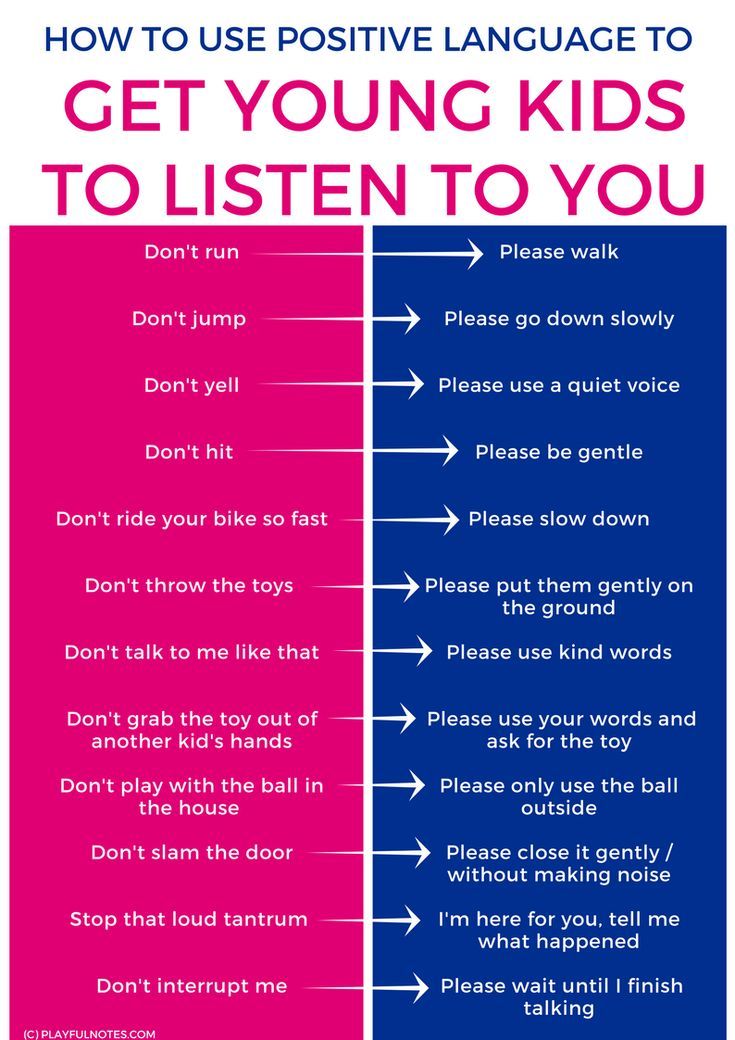 Here, too, in several places from the Proverbs of Solomon, the context shows that we are not talking about specific methods of punishment, but about punishment in general, punishment as one of the components of education.
Here, too, in several places from the Proverbs of Solomon, the context shows that we are not talking about specific methods of punishment, but about punishment in general, punishment as one of the components of education.
I emphasize that it does not follow from this that a correct understanding of the biblical text excludes flogging as such. No, it's just that it doesn't stand out somehow specially among other methods of punishment. It is not condemned, but it is not prescribed either.
In addition to the Bible, they also refer to Domostroy, a very popular book from the era of Muscovite Rus'. But the “Domostroy” written in the 16th century by Archpriest Sylvester (for more details on it, see the article “Whips and Gingerbreads of the “Domostroy”” ) is not a doctrinal book. This is a guide to housekeeping, nothing more. Moreover, for its time, the book was very progressive - its task was not so much to allow punishments, but to somehow narrow the circle of what was permissible, because people of that time in terms of family violence could not know the boundaries at all.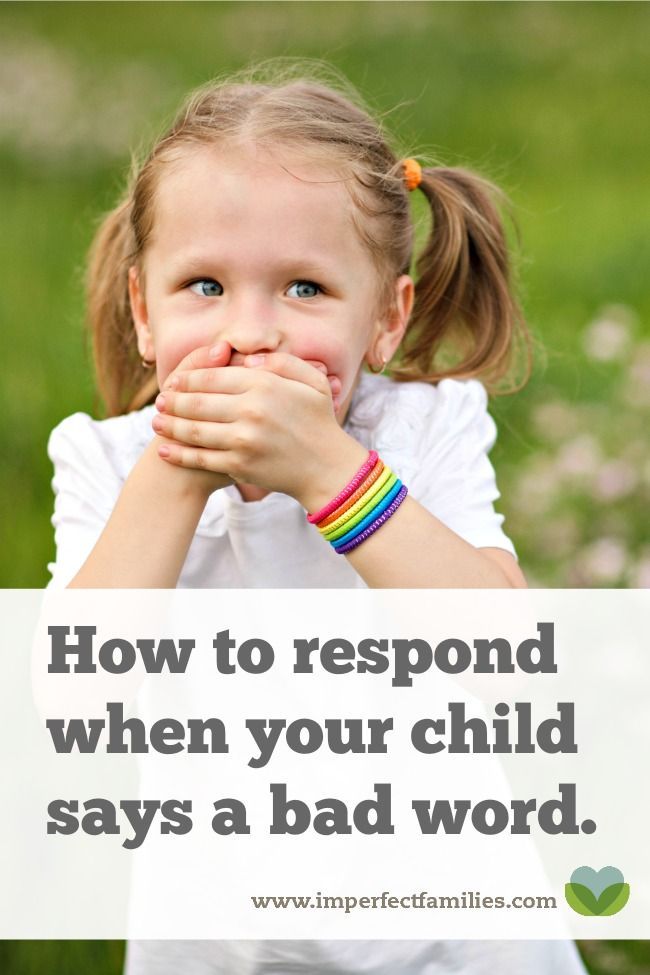 It would be strange to be guided by this book in the 21st century.
It would be strange to be guided by this book in the 21st century.
The true Christian tradition of education comes from the fact that parents have a colossal responsibility before God for their children. Their task is to teach the child to be a man, to teach him to respect his parents, because they love him and take care of him. This is what our faith calls for, and not to use violence if something goes wrong. Because violence destroys humanity - both in parents and in a child. Yes, unfortunately, one cannot do without punishment in education, but punishment and violence are not at all the same thing.
Prepared by Vitaliy Kaplan
How to properly punish a child: 10 important rules
One of the eternal questions of parents, cause for anxiety and worries, heated discussions and disputes - to punish children or not? And if yes, then how to do it right, so as not to harm the unstable child's psyche? And if you do not punish, then where is the guarantee that the child will not grow up as a spoiled egoist, ready at any moment to sit on the neck of kind-hearted parents and turn into a real tormentor? About this "Oh!" said family psychotherapist and clinical psychologist Maria Merolaeva.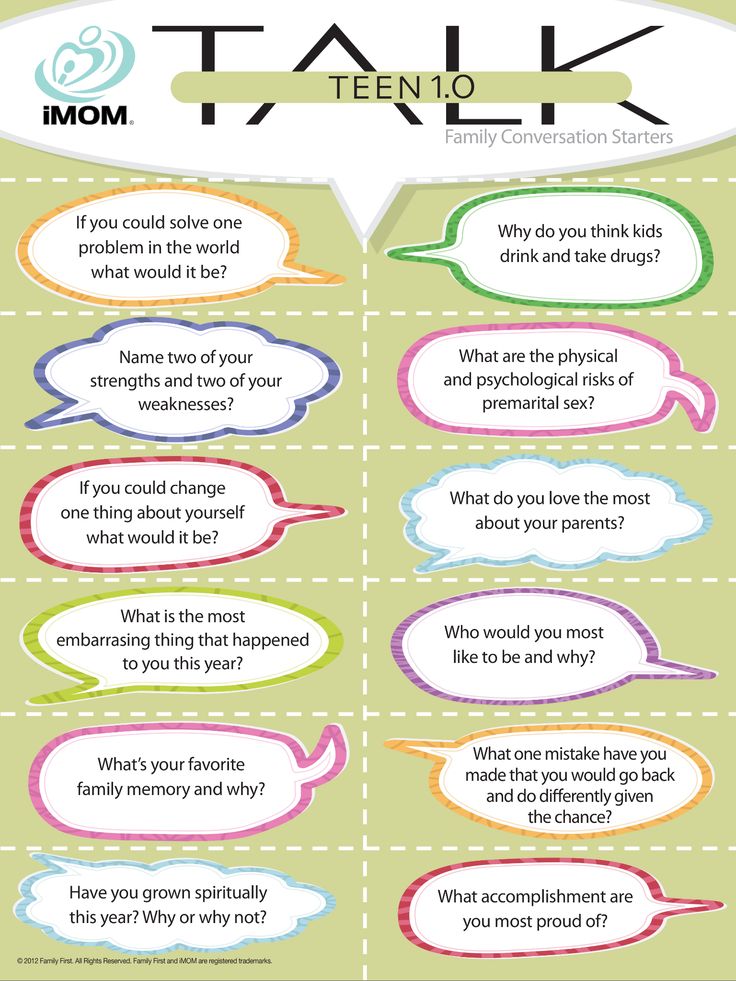
Maria Merolaeva, clinical psychologist, family psychotherapist
Some parents believe that a child is a source of sins and vices, it is necessary to punish him, using physical force, not sparing, otherwise nothing good will grow out of him. As a rule, they defend their position by saying that “we were beaten in childhood, and we grew up to be good people”, citing as an example those who grew up “not very”, which means, most likely, “they beat us a little”. The meaning of such a model of education is to subordinate the will of the child to himself, "so that he does not do stupid things."
The other extreme is to avoid any punishment, justifying it by saying that the child is “small, he just doesn’t understand what he is doing, he doesn’t do it on purpose, you just need to be able to negotiate with him” and so on. Thus, parents, without noticing it themselves, remove responsibility from their child. This model has become widespread in connection with the growth of the "value of the child" and denies the very idea of \u200b\u200bthe family hierarchy.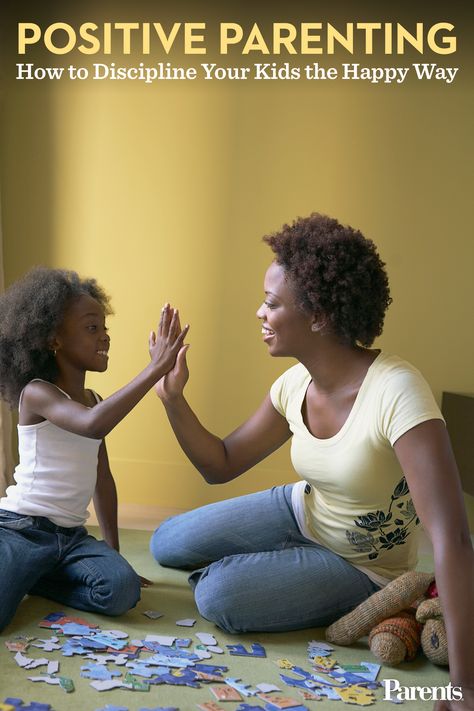
In fact, neither the first nor the second option is allowed. It is impossible to use physical and moral violence (to threaten, not to talk, blackmail, shout) to a child in any case. Of course, there are cases when a parent, under the influence of emotions, loses control and can spank or raise his voice, but deliberately making a child suffer means not leaving him a chance to develop such feelings as compassion, regret, not giving him the opportunity to realize that he is important and expensive.
Parents leave the child completely unpunished most often, who are afraid of offending him, causing him harm, perhaps giving in to children's tantrums and anger, trying by any means to minimize their manifestations, or in the case of pedagogical neglect, when there is simply no strength to educate and it is easier to be allowed to do whatever you want than to try to change the behavior of the baby.
To figure out how to punish a child in a way that makes sense, you need to understand what punishment is, what is its purpose? What do we as parents want to achieve by punishing our children?
Etymologically, the word "punishment" comes from the verb "to show" - that is, to instruct, show.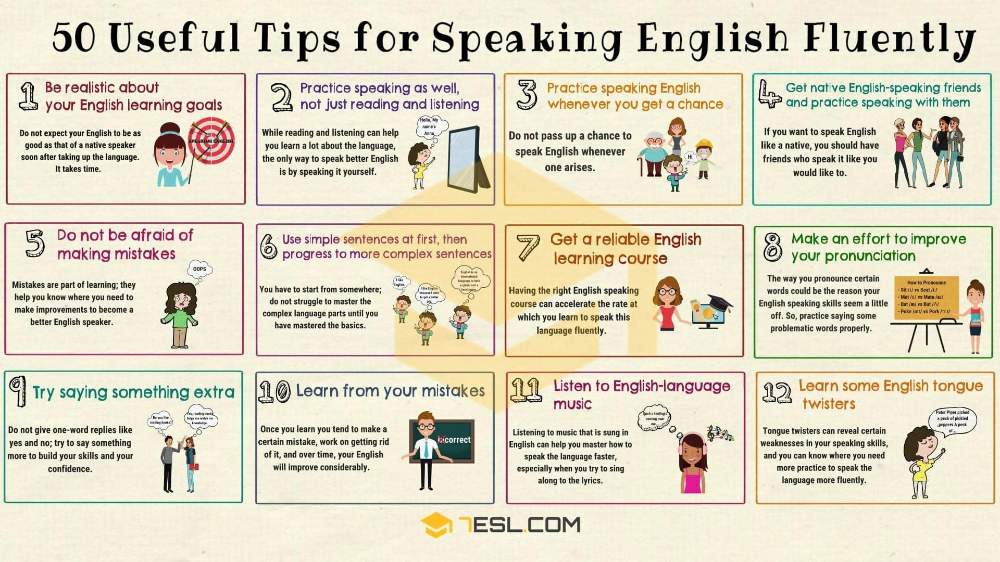 Then it is logical that "punishment" is something that we use to direct the child on the right path, to outline for him the boundaries of what is permitted. As a rule, when punishing, we want the best for our children - so that they understand what is good and what is bad, grow up as "real", "worthy" people, do not make irreparable mistakes in their lives, become better than us.
Then it is logical that "punishment" is something that we use to direct the child on the right path, to outline for him the boundaries of what is permitted. As a rule, when punishing, we want the best for our children - so that they understand what is good and what is bad, grow up as "real", "worthy" people, do not make irreparable mistakes in their lives, become better than us.
Then the next question is: what should be the punishment for the child to really realize that he did wrong, learn from what happened and learn from the experience? Will we achieve these lofty goals by raising a child with the help of carrots and sticks? Of course not. The only thing we can teach with such methods is to be afraid of punishments and parents, to try to earn encouragement, rewards - and all this without really thinking about what happened.
In order for punishment to be useful, and not just a way to relieve an upset, tired, helpless parent, the following rules must be observed:
-
The main rule stems from the basic need that every child has - the need for affection.
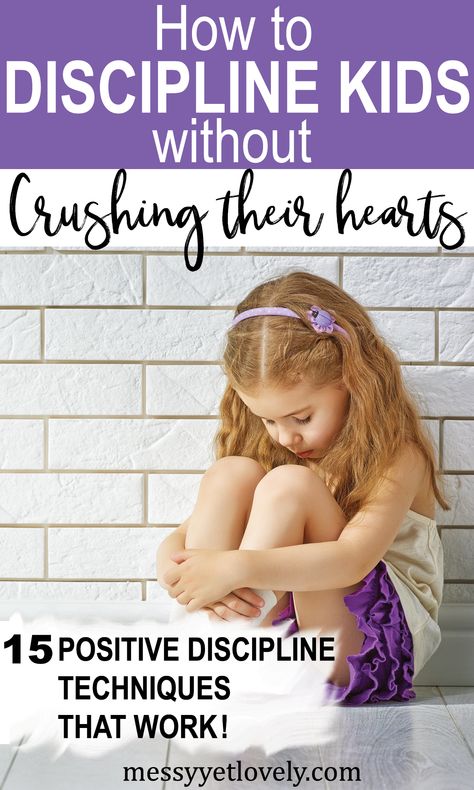 A parent for a child is, first of all, a source of protection, children need the care of a strong and responsible adult who is a priori higher and dominates, but not in order to subjugate and oppress, but in order to help and protect. When a secure attachment is formed, a very close bond is established between the child and the parent, which greatly simplifies the interaction and makes the baby obedient. When punishing a child, it is important to maintain a respectful attitude towards him.
A parent for a child is, first of all, a source of protection, children need the care of a strong and responsible adult who is a priori higher and dominates, but not in order to subjugate and oppress, but in order to help and protect. When a secure attachment is formed, a very close bond is established between the child and the parent, which greatly simplifies the interaction and makes the baby obedient. When punishing a child, it is important to maintain a respectful attitude towards him. -
In order for the lesson to be learned, the child, first of all, must understand, realize what he is wrong about, feel the consequences of his misconduct. And these consequences are not the belt or the cry of an angry parent, not the deprivation of sweets or the prohibition to leave the house. It is something that follows directly from what has been done. For example, if you were late home and didn’t call, it means that you don’t know how to plan your time and it’s too early for you to go out in the evenings with friends.
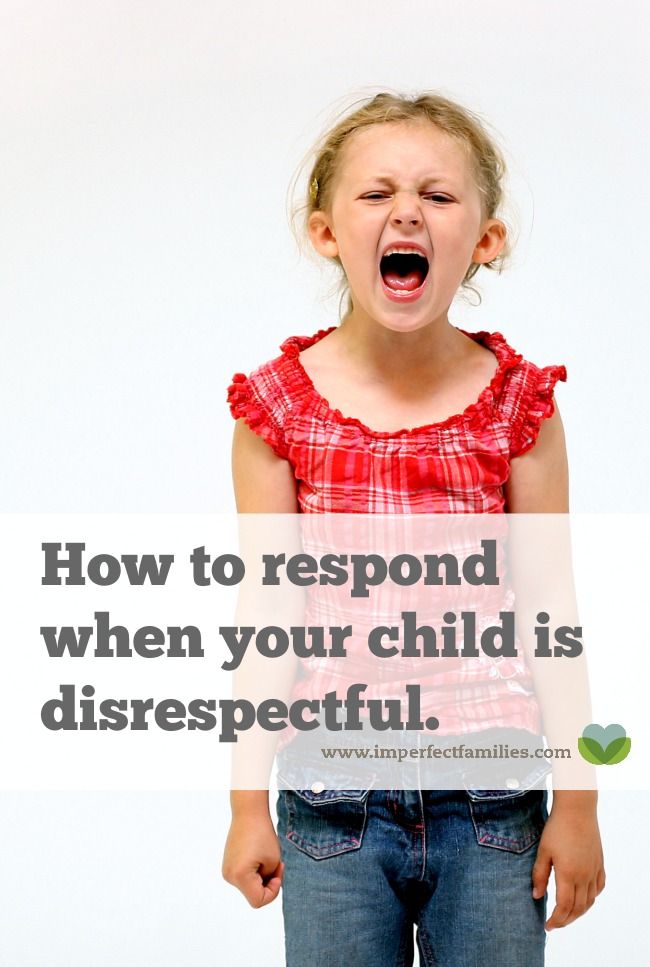 You scream and cry on the playground or in the store - I'm very sorry, but it spoils my mood so much that now I don't want to continue the walk anymore and we will have to return home. If you didn’t do your homework on time, then you have to do it before going to bed instead of a cartoon or evening reading. If you offended someone and did not apologize, then they will no longer want to play with you. The essence of this method is that for every action the child receives a response from life itself. This helps him gain an orientation in how the world works. It is this tactic that teaches children to anticipate the consequences of their actions in the future, to feel regret for what turned out badly.
You scream and cry on the playground or in the store - I'm very sorry, but it spoils my mood so much that now I don't want to continue the walk anymore and we will have to return home. If you didn’t do your homework on time, then you have to do it before going to bed instead of a cartoon or evening reading. If you offended someone and did not apologize, then they will no longer want to play with you. The essence of this method is that for every action the child receives a response from life itself. This helps him gain an orientation in how the world works. It is this tactic that teaches children to anticipate the consequences of their actions in the future, to feel regret for what turned out badly. -
Under no circumstances should a child have doubts that his parents love him for who he is. He must understand that he will be accepted regardless of his actions. That is why when punishing, it is important to focus on the offense, and not on the personality characteristics of the child.
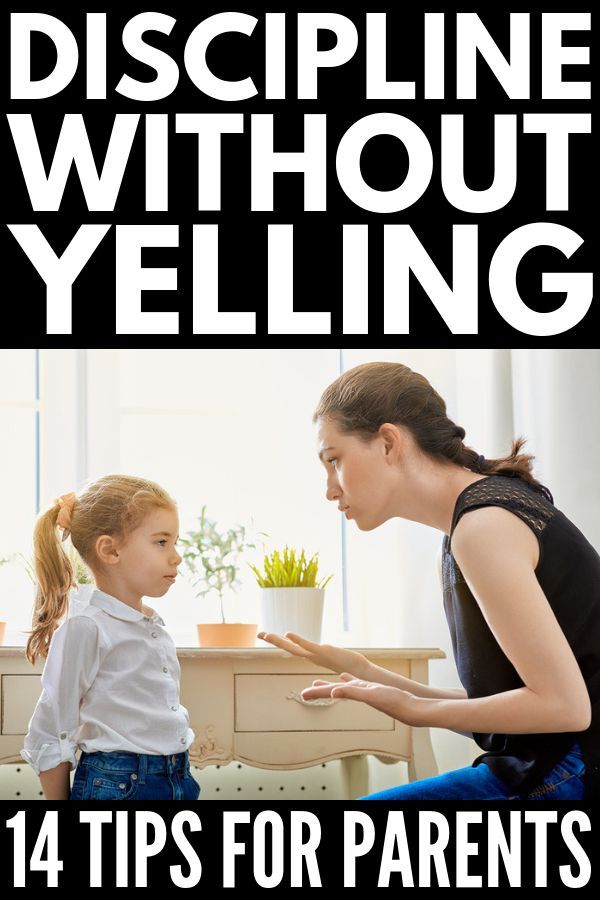 If, for example, a kid, while playing with food, spills soup, you should not tell him that he is a "blunder" - just explain why his act is bad and offer him a cleaning rag to consolidate the experience gained.
If, for example, a kid, while playing with food, spills soup, you should not tell him that he is a "blunder" - just explain why his act is bad and offer him a cleaning rag to consolidate the experience gained. -
When punishing a child, you should focus on staying in an adult position. If at the moment of a conversation with a child the parent feels irritation or despair, this means that he has been knocked out of the position of an adult. This often happens when children's tears, whims and tantrums awaken the inner child in us - then we become helpless. In this case, you should ask yourself the question "How old am I now?", step aside, cool down a bit and only after that return to the conversation. For example, in a situation where a child refuses to turn off the TV, but a large number of cartoons is definitely not good for him, a mother from an adult position can say this: “I'm sorry, but I can't let you watch the second cartoon, because if you watch two in a row, then you have a tantrum, and everyone’s mood deteriorates.
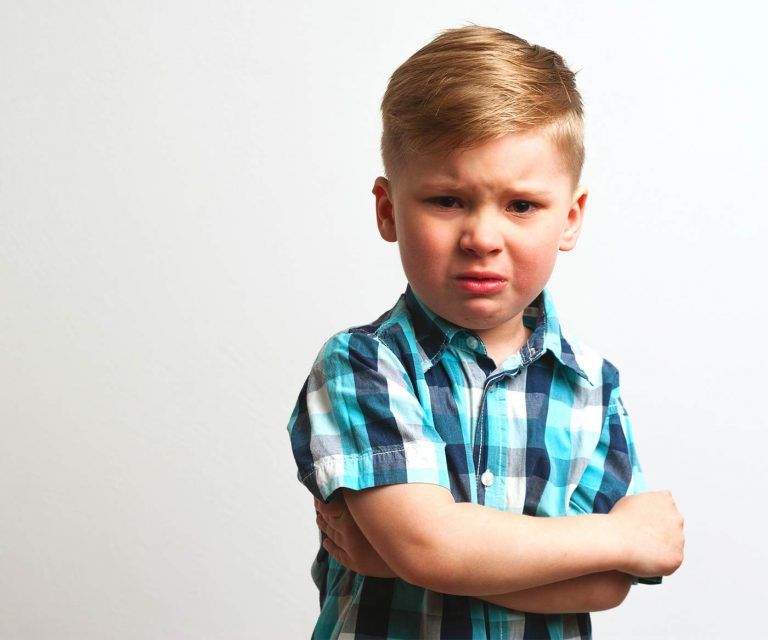 ”
” -
Be consistent, consistent and predictable in your demands and reactions. This means that within the family there must be some unified concept of what is possible, what is not, what is good and what is bad. The child must be initiated into the nuances of this concept and firmly know what he can be punished for. At the same time, the way the parents react should not depend on the mood, the weather outside the window and the time of year. For example, if a mother in a good mood asks a child to turn off the TV, and he starts to act up and does not turn it off, she, smiling, allows him to continue. But in the same situation, if the mother is in a bad mood, she starts to quarrel, scream and most likely punish the baby. In this state of affairs, the child is simply not able to learn what he can and cannot do.
-
It is very important to use so-called "temporary" language, rather than permanent language, when talking to a child about bad behavior. For example, “You just broke a toy, now you have to play without it for a while” instead of saying “You always break everything! I will never buy you toys again.
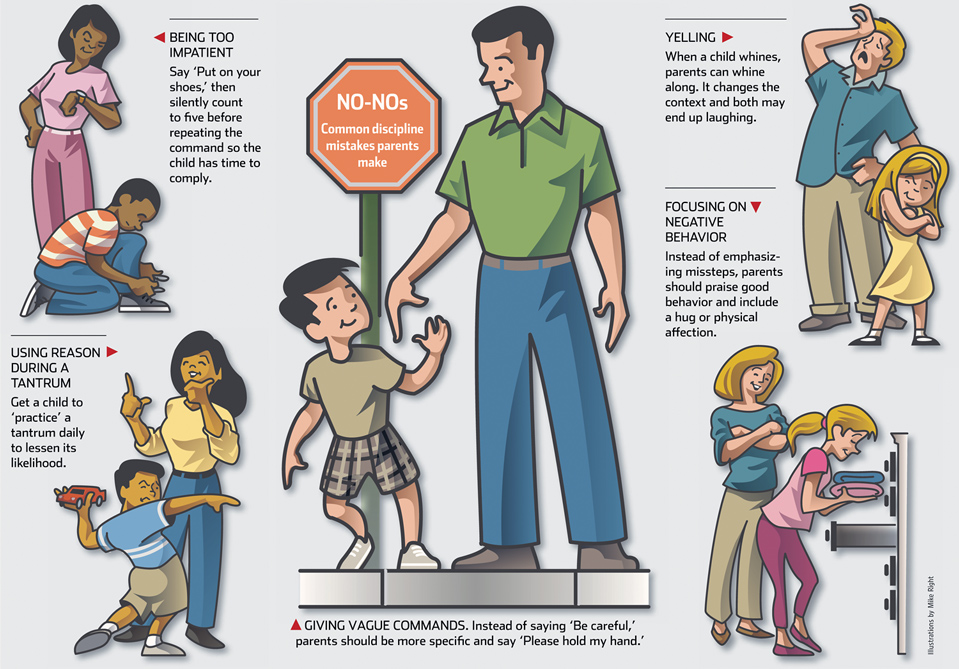 ” Using words such as “never, never, to anyone,” you risk not fulfilling this promise and losing trust.
” Using words such as “never, never, to anyone,” you risk not fulfilling this promise and losing trust. -
Punishment must be age-appropriate. It is useless to try to explain something and give lectures to a two-year-old kid, because he is simply not able to learn what you are telling him about and cannot concentrate voluntary attention for more than five minutes. In the same way, it does not make sense as a punishment to forbid a teenager to eat sweets.
-
Punishment must be just and proportionate to the seriousness of the act.
-
In no case should you frighten and intimidate a child - this is a sure way to teach him to lie and get out.
-
Always, under any circumstances, remember the greatest value that we have - the emotional connection with the child. After all, if you think about it, it becomes obvious that not a single spoiled sofa or a bad mark at school, an extra 30 minutes at the computer or a lost phone is worth breaking this connection, darkening the image of the inner parent that each of us hears somewhere in soul when it needs protection, support, love and acceptance.
